You are using an outdated browser. Please upgrade your browser or activate Google Chrome Frame to improve your experience.

An Easy Guide to Talking About Weather in English: 121 Key Words and Phrases You Need to Know
Whether you’re standing in the grocery checkout line or meeting new people at a party, the weather is a popular conversation starter.
Many of us keep the weather forecast on our phones, and it helps us decide what we’re going to do for the day.
In this post, you’ll learn all the terms you need to talk about weather in English, like describing sunny days, stormy days and all those in between —as well as why the weather is considered such a hot topic.
How to Talk About Weather in English
1. how’s the weather / what’s it like out there, 2. what’s the temperature like (out there), 3. what’s the weather forecast, 4. what a beautiful day, 5. it’s warm and sunny outside., 6. we couldn’t ask for better weather., 7. this is the best weather we’ve had all season, 8. awful weather, isn’t it, 9. it’s boiling hot, 10. it’s freezing outside, 11. i can’t believe this weather, 12. it’s raining cats and dogs, 13. it looks like rain., 14. a storm seems to be coming this way., 15. the weather will be warming up soon., 16. it’s expected to be hotter than last year., the difference between weather vs. climate vs. temperature, more useful weather words in english, words to describe the weather in english, vocabulary for extreme weather conditions, weather clothes and accessories in english, weather idioms in english, and one more thing....
Download: This blog post is available as a convenient and portable PDF that you can take anywhere. Click here to get a copy. (Download)
Whether you’re at the coffee machine or waiting your turn at the post office, you might get into a casual conversation with the person next to you about what’s happening outside.
Here are some phrases to talk about the weather in English.
Both of these are good questions to ask if you haven’t gone outside in a while, and you’re wondering if things have changed.
Or maybe you’re still debating about whether or not you want to venture (go) outdoors, so you might ask this to someone who comes inside.
This question is asking about degrees in Fahrenheit or Celsius . However, people are typically looking for an approximate temperature:
It’s around 40°.
Of course, an answer like the following is still acceptable:
It’s really (hot/cold/warm/cool).
If you’re planning a trip or event, you might want to know the weather ahead of time. Forecast simply refers to what kind of weather is expected in the coming days or weeks.
Use other adjectives like nice or gorgeous to make your descriptions more interesting.
This is a simple sentence using two or more descriptive adjectives.
It’s warm and windy outside.
Blue skies is a phrase meaning a sign of good weather:
There’s nothing but blue skies outside.
Here the use of the comparative adjective better suggests that the weather is so good that it couldn’t get any better. You could use other comparative adjectives like nicer or more beautiful .
We couldn’t ask for nicer weather this week!
The superlative adjective best is used to show that this weather is simply the best and nothing else can be better. You can also use worse with this sentence structure.
Here’s another example:
This is the most beautiful weather we’ve had all week!
This is the worst weather we’ve had all spring!
Using the question form can be quite refreshing, especially when you expect the person to agree with you. You could use similar adjectives like nasty or terrible instead.
Nasty weather today, isn’t it?
The word boiling is used here as an adjective, not as a verb, to create an image of how hot it is. You could also use adverbs like extremely or really .
In this simple sentence, you may use any verb in its -ing form to describe the weather, such as pouring (raining very heavily) or sizzling (very hot).
Here’s a simple way to express your surprise. Feel free to use any other suitable noun such as storm or wind .
This is a popular idiom (expression) for saying that it’s raining heavily. Have fun with it.
Here you’re saying it looks like it might rain in the near future. It could be that you can see dark clouds or hear thunder. You could use other nouns like snow or a storm .
The phrase seems to be suggests that a storm is likely to be coming. You could also say:
Heavy rain seems to be heading this way.
Warming up means the temperatures will be rising and it’s getting warmer. The opposite of that would be:
The weather will be cooling down soon.
The phrase expected to be suggests that you think it’ll happen.
Use a comparative adjective here to compare the weather now with another time in the past. You could use other comparative adjectives like colder or less windy .
In English, the words “weather,” “climate” and “temperature” usually aren’t interchangeable. This means they have slightly different meanings.
Weather is used to describe what’s going on outside. For example, the weather can be stormy, sunny, cloudy or rainy.
Climate refers to the weather tendencies of a place. For example, the climate of Texas—a state in the United States—can be described as scorching hot summers and mild winters.
Finally, the temperature is how hot or cold it is outside. In most countries, the temperature is expressed in degrees Celsius. But in the United States, you’ll hear the degrees in Fahrenheit.
Examples of temperatures are 85 degrees, 90 degrees and 32 degrees.
If you’re looking for more vocabulary to help you talk about the weather in English, here’s everything you need:
So there you have it—a great list of weather words and phrases to get you talking about weather like a native speaker .
I expect you’ll warm up to (get used to) these sentence structures pretty quickly!
While knowing this vocabulary is a big step forward, understanding the nuances of how native speakers actually use these terms is even more important. That’s where a resource like FluentU can come in.
Finally, remember to practice the words, phrases and questions in this post so you can feel comfortable using them in conversations.
If you like learning English through movies and online media, you should also check out FluentU. FluentU lets you learn English from popular talk shows, catchy music videos and funny commercials , as you can see here:

If you want to watch it, the FluentU app has probably got it.
The FluentU app and website makes it really easy to watch English videos. There are captions that are interactive. That means you can tap on any word to see an image, definition, and useful examples.

FluentU lets you learn engaging content with world famous celebrities.
For example, when you tap on the word "searching," you see this:

FluentU lets you tap to look up any word.
Learn all the vocabulary in any video with quizzes. Swipe left or right to see more examples for the word you’re learning.

FluentU helps you learn fast with useful questions and multiple examples. Learn more.
The best part? FluentU remembers the vocabulary that you’re learning. It gives you extra practice with difficult words—and reminds you when it’s time to review what you’ve learned. You have a truly personalized experience.
Start using the FluentU website on your computer or tablet or, better yet, download the FluentU app from the iTunes or Google Play store. Click here to take advantage of our current sale! (Expires at the end of this month.)
Enter your e-mail address to get your free PDF!
We hate SPAM and promise to keep your email address safe

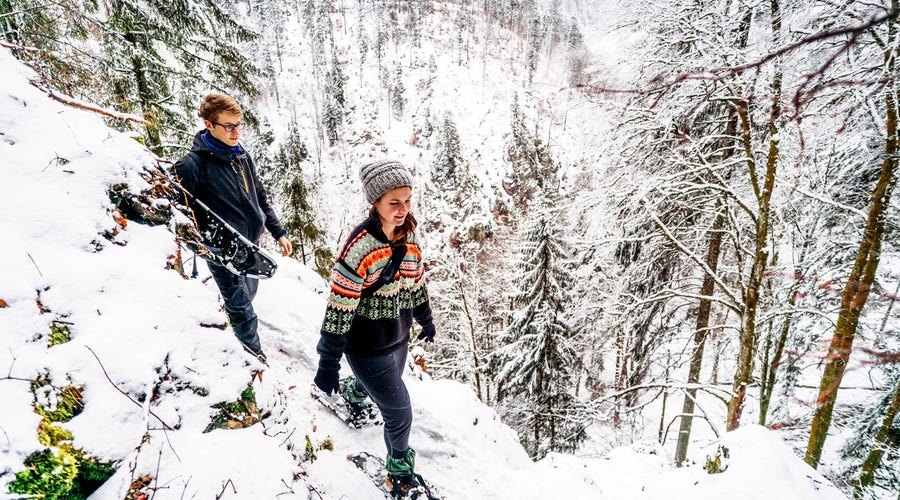
165 top ways to talk about weather in English [+ break the ice!]

Karolina Assi
English speakers love making small talk, and talking about the weather is one of the most used ice-breakers.
So whether you want to make small talk during the coffee break at work, you’re looking to strike up a conversation with an ice-breaker, or fill in awkward silence, the weather can be a failsafe topic.
In addition, knowing the weather vocabulary and expressions will help you understand the weatherman on the TV and check the weather on the internet before your next trip.
To help you become fluent in weather-talk, we’ll share with you over 140 ways to talk about the weather in English.

How do you say “weather” in English
In English, the word “weather” is the most common word to use when talking about the atmospheric conditions outside our windows. It’s pronounced <weh-thr> in American English and <weh-thuh> in British English, and it only exists in the singular. If you’re curious why it’s simply because “weather” is an uncountable noun.
There are also other words that can be easily confused with the word “weather,” such as “climate” or “temperature.” Let’s briefly explain the differences between them:
- The word “weather” is used to describe the state of the atmosphere in terms of wind, temperature, humidity, and more. For example: “ The weather outside is nice.”
- The word “climate” is used to describe the general weather of a specific region. For example: “The UK has a temperate climate.”
- The word “temperature” is used to describe how hot or cold the weather is, and it’s measured in degrees (Celsius or Fahrenheit, depending on the country). For example: “The temperature is 30 degrees Celsius.”
Talking about the weather in English
The weather is an easy topic to talk about with pretty much anyone. Here are a few key weather expressions you need to know to have a fluent conversation with weather words and phrases in English.

- What’s the weather like today?
- What’s the weather like in your country?
- How’s the weather?
- What’s the temperature today?
- What’s the weather forecast?
- Such beautiful weather today, isn’t it?
- Are you a hot weather person or a cold weather person?
- It’s hot/cold outside.
- It’s cloudy outside. It might rain soon!
- It’s raining cats and dogs!
- A storm is coming.
- It’s sunny outside but with a cool breeze.
- It’s looking like it’ll be as cold as 5 degrees this morning.
- The sun is shining outside.
- The weather’s nice today.
- Can you believe how cold it is outside?! It’s freezing!
You might also find it helpful to combine your weather expression terminology with such phrases as:
- It’s going to be hot this Sunday, should we go to the beach?
- November this year has been warmer than usual.
– and in that case don’t forget to check out our article to master the days of the week in English and the seasons and months of the year in English.
List of weather vocab in English
If you’re looking to learn the weather vocabulary you can use in conversation with anyone, you’re in the right place!
But before we share with you the most useful weather vocabulary, terms, and phrases you need to learn before you start a conversation about the weather in English, let’s go over the weather grammar.
You can use three sentence structures to talk about the weather in the present tense:
- It is + adjective : It is snowy . It is rainy.
- It is + verb-ing : It is snowing . It is raining.
- There is a + noun : There is a storm. There is a drought.
To talk about the weather in the past tense, you’ll use the same sentence structures but put the verb “to be” in the past tense (except for present perfect), for example:
- It was rainy yesterday.
- It was raining yesterday.
- There was a storm yesterday.
Everyday weather terms in English
In the UK, it’s mostly cloudy and rainy, while Canada is known for its extremely cold and snowy weather!
What’s the weather like in your country? Let’s learn some vocabulary to describe the daily weather.
Extreme weather terms in English
When the weather is nice outside, life becomes more enjoyable, even in the difficult moments. But extreme weather conditions can not only make our lives more challenging but also carry a lot of destruction. Unfortunately, you may hear or see some of these words and phrases more frequently used in the news.
Here’s a list of over 30 extreme weather terms in English.

Temperature in English and how to talk about
Talking about the temperature is inevitable in any weather conversation. Take a look at these essential terms related to temperature in English.
Other important weather words in English
While talking about the weather may seem like the easiest conversation ever, this topic is actually way deeper than most of us realize.

So, to make your weather conversations go beyond just discussing how rainy, sunny, or snowy it is outside, we’ve prepared a list of other important weather words in English.
15 weather-related idioms in English
It’s a fact: English would be way less fun without its idioms. And, of course, this guide wouldn’t be complete without a list of weather idioms! Some of these are very common, but others may surprise you.
Examples of weather conversation in English
Wondering how to make small talk about the weather? We’re here to save the day! Here are three simple weather conversations you can use in any social situation to break the ice.
- Beautiful day, isn’t it?
- Yeah, the sun has been shining all day! It’s been a while since we had such lovely weather in England.
- You’re right! It’s pretty hot today.
- Yes! A great day for a nice picnic.
- It’s freezing today, don’t you think?
- Absolutely! I think it’s around 15 degrees below zero.
- Hopefully, it doesn’t snow.
- Oh, I hope it does! I love snow!
- So, what’s the weather like in your country?
- It depends on the region. We have all four seasons.
- And what region are you from?
- I’m from Tenerife. It’s always hot and sunny there!
- I love hot weather! I bet I’d be very happy there.
Interesting weather facts
If you want to impress your coworkers, friends, or family the next time that the weather topic comes up, it’s good to know a few facts and curiosities you can casually throw into the conversation.
So, here are four YouTube videos about the weather that we’ve found interesting:
- Extreme Weather by MinuteEarth
- 10 Strangest Weather Events in US History by SecretTruths
- The Incredible Logistics Behind Weather Forecasting by Wendover Productions
- 5 Creepy Weather Phenomena That Shouldn’t Be Allowed by SciShow
Extreme Weather | MinuteEarth Explains
It was a breeze, wasn’t it?
The weather is a topic that can come in handy in many situations, whether it’s to make small talk at a party where you don’t know anyone, fill in awkward silence, or chat with your coworkers during the office coffee break. And it doesn’t have to be boring!
With the vocabulary and expressions covered in this article, you’ll be able to confidently talk about all types of weather, make your weather conversations slightly more interesting – and impress your interlocutors with your English!
And if you’d like to learn more useful vocabulary to help you make small talk and spark conversations, check out the other articles on our English blog !
Related Articles

July 15, 2022
How to order food in English: 104 yummy words to wolf down

June 22, 2022
How to describe family in English: 80+ crucial words & sayings

March 14, 2022
90 marvelous shades of color in English from mint green to mango
1-866-423-7548, find out more.
Fill in the form below and we’ll contact you to discuss your learning options and answer any questions you may have.
I have read the Terms of Use and Privacy Policy
- Privacy Policy
- Terms Of Use
- Student Login:

#285: How to Talk about the Weather in English | Advanced Vocabulary Lesson
Aug 16, 2023 | Advanced Vocabulary

In a recent lesson, I highlighted advanced vocabulary to talk about the temperature in English – for example, scorching hot or freezing cold.
But what about the weather in general?
Depending on where you live, you might have a handful of words and expressions to describe different types of weather with
In this Confident English lesson, you’ll learn 23 new nouns, adjectives, and verbs to precisely describe the weather in English.
How to Talk About the Weather in English | Advanced Weather Vocabulary
Category #1: sun.
- Def : Free from darkness, obscurity, or cloudiness
- Ex . “ It’s a lovely, clear day today. ”
- Def : shining and emitting intense light
- Ex . “ The sun is brighter than usual today; I need to wear my sunglasses. ”
- Def : strong, unpleasant, and difficult to be in
- Ex . “ The curtains can block the harsh sunlight during the summer months. ”
Category #2: Wind
- Def : a light flow of air, a gentle wind blowing by
- Ex . “ The gentle breeze by the ocean was cool and refreshing. ”
Blustery/Gusty
- Def : blowing strongly, violently, and, sometimes, loudly in sudden bursts
- Ex . “ The blustery winds made it hard to walk home.”
- Def : a strong wind, often blowing at 45-90 kilometers per hour
- Ex . “ The forecast predicts gale-force winds of nearly 80 km/h. ”
Category #3: Clouds
- Def : having a sky covered or obscured by clouds
- Ex . “ It was an overcast morning, so I wasn’t too worried about getting sunburned. ”
- Def : damp, partially dark, rainy, and with thick cloud cover
- Ex . “ The weather is so gloomy today; it’s perfect for staying in and reading books. ”
- Def : black or deep gray holding rain or other precipitation, usually seen during thunderstorms
- Ex . “ The skies got quite dark just before the thunderstorm began. ”
* Note : Dark clouds are usually a sign that there may be a storm or rain soon.
👉 Pop Quiz:
Which word best completes this sentence?
“ I don’t feel like going out today. It looks so ______ outside. ”
(See the comments section below for the best answer.)
Category #4: Rain
- Def : to rain gently in fine mist-like drops, often concentrated in particular areas and drier in others
- Ex . “ It’s starting to drizzle. We should hurry back before it really starts to rain .”
- Def : heavy, continuous fall of rain; pouring rain within a short time
- Ex . “ In the news, it said there will be strong winds and a downpour of rain this week. ”
Torrential rain
- Def : extremely heavy downpour
- Ex . “ This season, the torrential rains ruined the farmers’ crops.”
- Def : An overflowing of water, usually a large amount, onto land that is normally dry.
- Ex . “ In many parts of India, floods are a common occurrence. ”
- Def : long period of abnormally low rainfall, which then affects growing or living conditions.
- Ex . “ A decade after the historic drought, heavy rains are causing superblooms throughout California. ”
Category #5: Snow
- Def : a sudden, brief occurrence of very cold weather
- Ex . “ In 2019, an intense cold snap led to burst pipes in many homes. ”
- Def : Windswept, cold, and unwelcoming
- Ex . “ The bleak weather in Iceland made me second-guess my travel plans. ”
- Def : snow or ice that is beginning to melt, especially when the weather transitions from colder to warmer temperatures
- Ex . “ The streets in our neighborhood are covered in dirty, gray slush. ”
- Def : thin, new ice that forms on freshwater or dew-covered surfaces; often transparent and difficult to see in winter
- Ex . “ The car hit a patch of black ice and slid to the side of the road. ”
Freezing rain
- Def : Raindrops that freeze upon touching a freezing surface, creating a layer of ice
- Ex . “ I slipped and fell going down the stairs due to last night’s freezing rain. ”
- Def : Raindrops that partially melt into snowflakes and refreeze into small ice pellets before reaching the ground
- Ex . “ The snow quickly became sleet and made driving difficult. ”
- Def : Precipitation of small balls or other pieces of ice (hailstones) that often form within thunderstorms, often growing in size as they fall toward the ground
- Ex . “ Due to the hail and snow, everyone’s cautioned to drive slowly. ”
- Def : a severe snowstorm with strong winds
- Ex . “ The blizzard swept through most of the East Coast. ”
- Def : a weather condition in a snow-covered area in which no objects cast shadows, a horizon cannot be seen, and only dark objects easy to spot
- Ex . “ We got caught in the whiteout and couldn’t see anything. ”
“ We were stuck in the _______ for hours. We couldn’t even see the people walking towards us. ”
(See the comment section below for the best possible answer.)
Time to Practice!
Now that you have these more powerful, more descriptive options to talk about the temperature, I want you to practice.
Choose one of these questions and share your answer with me in the comments below.
- How would you describe the weather in your city using the words from today’s lesson?
- Use the words in today’s lesson to describe the most extreme weather conditions in your country/state/city. What other weather words can help you accurately and clearly describe these extreme weather conditions?
~ Annemarie

Get the Confidence to Say What You Want in English
Follow my 3-step solution to speak English with clarity, fluency, and freedom so you can say what you want with confidence.
You'll also get my Confident English lessons delivered by email every Wednesday and occasional information about available courses. You can unsubscribe any time.
More Like This

How to Describe Your Personality in English
Did you know it’s common in daily conversation & in job interviews to hear this question: “So, how would you describe yourself?” — How would you answer the question? Use this lesson to learn real-life English vocabulary for describing personalities in English.

#306: Friendly Ways to Invite Someone in English
Extend invitations in English with phrases that strike the perfect balance between formality, friendliness, and warmth to make your invitations feel genuine and welcoming.

#305: Discover Effective Ways to Talk about Hope in English
Dive deep into the heart of English tenses—past, present, and future—highlighting how ‘hope’ evolves with each so you can talk about your hope in English.
![weather topic english #304: Vocabulary for Deadlines and Time Management [+ FREE Worksheet]](https://www.speakconfidentenglish.com/wp-content/uploads/2024/02/Vocabulary-for-Deadlines-and-Time-Management-Lesson-400x250.png)
#304: Vocabulary for Deadlines and Time Management [+ FREE Worksheet]
What does ‘warm, brown sweater’ sound correct but ‘brown, warm sweater’ doesn’t? It’s all about the adjective word order in English.
![weather topic english #303: The Right Adjective Order | English Grammar Focus [+ FREE Worksheet]](https://www.speakconfidentenglish.com/wp-content/uploads/2024/02/Adjective-Word-Order-Lesson-400x250.png)
#303: The Right Adjective Order | English Grammar Focus [+ FREE Worksheet]

#302: Master Spontaneous Speaking: Proven Strategies to Boost Your English Fluency
Three proven strategies that help you respond quickly and feel more comfortable in the moment so you can enjoy fluent English conversations.
© Copyright 2014-2024 Speak Confident English | Privacy Policy | Terms & Disclaimer | Online Class Policies
Answers to the pop quiz questions:
Answer : gloomy
“ We were stuck in the _______ for hours. We couldn’t even see the people walking towards us. ”
Answer : whiteout
I really love the mild fall season. Neither too scorchy nor freezing. Yet, Argentina has quite settled weather conditions all through the year.
I’m with you on that, Ana Maria. A mild fall season is always lovely.
Hi Annemarie, In Budapest it’s raining cats and dogs :)) Best wishes, Krisztina
Pin It on Pinterest

How to talk about the weather in English
by stephanieprice | Apr 19, 2018 | Vocabulary
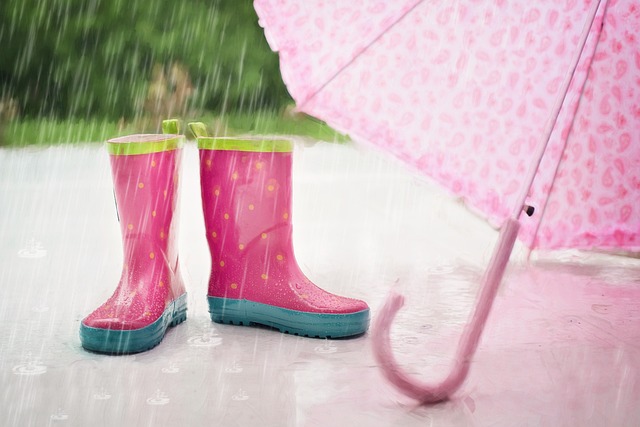
What is the weather like where you are at today? Is it always a little unpredictable or pretty consistent? Sometimes we never know, which is why everyone is always checking the weather reports. Sometimes we simply ask people, “hey, what is the weather like today?”. In this article we will show you how to talk about the weather in english.
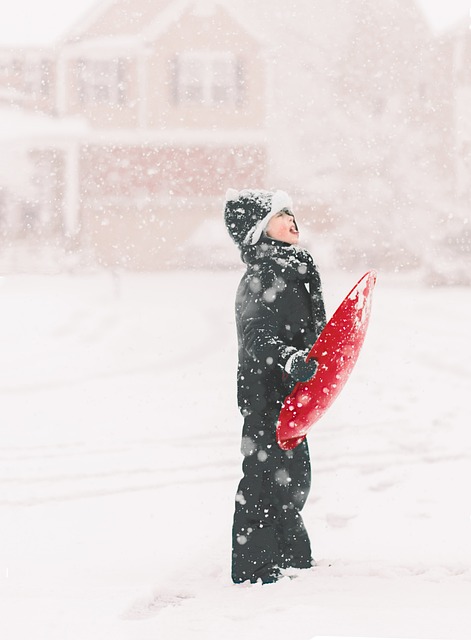
A beautiful day today, isn’t it? It’s warm and sunny and a lovely day for a walk in the park.
Or is it a bit chilly and cloudy where you are? Overcast skies and slightly rainy?
Or perhaps it’s hot and humid with a thunderstorm soon approaching?
Why is it that everyone always seems to be talking about the weather? Every culture and every language seems to have that one topic in common. Talking about the weather in English can sometimes be a bit tricky. If we think about all of the countries that speak English, the climates are so very different. Take just the United States for example, the weather in New York is definitely not what the same as the weather in San Francisco or Los Angeles.
Why is it so important to know how to talk about the weather in English?
Well, in addition to the wide range of vocabulary used when talking about the weather in English, it’s also a really important part of ‘small talk’ and it makes conversations with strangers a lot easier! We all have the weather in common so why not talk about it, all the time? Small talk is just polite conversation between two people that may not know each other very well. Talking about the weather is often how people start conversations with others. Or when you just don’t know what to say, talking about the weather is a good and safe option.
Conversation starter phrases about the weather in English
Here are some great ways to start a conversation. They are all polite and friendly ways to speak about the weather in a way that isn’t so dry and boring.
- Beautiful day, isn’t it?
- Can you believe all of this rain we’ve been having?
- It looks like it’s going to storm.
- We couldn’t ask for a nicer day, could we?
- How about this weather?
- It’s so nice out today, isn’t it?
- The weather’s nice today, right?
- It’s freezing today! Hopefully it doesn’t snow.
- Wow, it’s really hot/cold for this time of year.
- It’s really been pouring all day , huh?
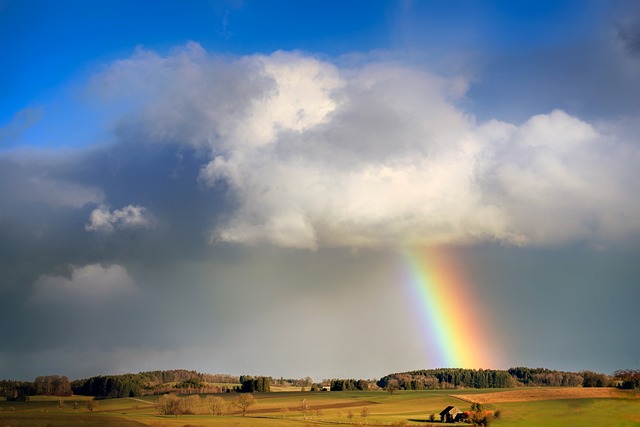
Each of these are friendly and easy to use. These phrases can be said to really anyone and in any situation. Starting a conversation while talking about the weather is easy, all you have to do is look outside and know a bit of vocabulary . So let’s look then to some vocabulary and words that often go together.
Interested in improving your English?
Sign up for a 30-minute trial lesson
Vocabulary words to talk about the weather in English
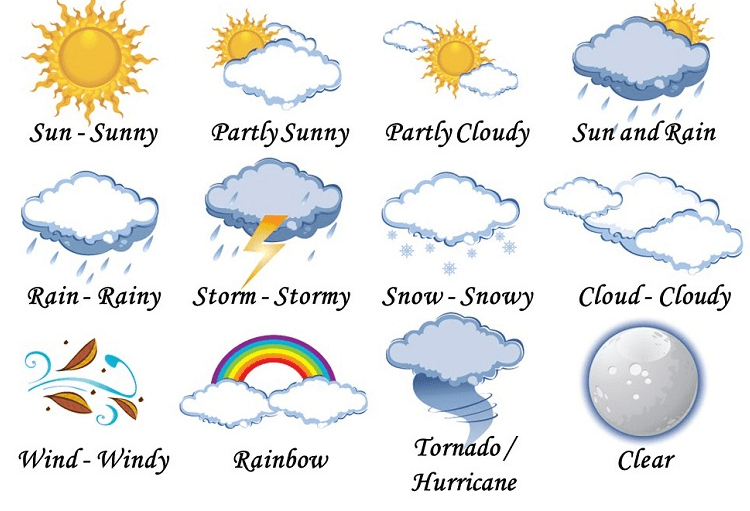
Hot/Warm/Cool/Cold
These are all words that are used to describe the temperature. Hot is only used to describe very, very warm temperatures such as in the middle of summer. In some parts of the world it is hot all year, however in most places only throughout the summer months. Warm would usually be used for the Spring and sometimes the Fall. Cool/chilly are usually used for the Fall or when it is only a little cold. Cold is only for the winter months when it is very cold and you need a heavy coat.
- Wow, it’s so hot outside today, I’ve been sweating non-stop!
- It’s finally warm outside and I can go out with only a t-shirt.
- Tonight will be a little chilly so I’m going to bring an extra jacket.
- Can you believe how cold it’s been lately with all of this snow?
Sunny/Rainy/Cloudy
Sunny is used to describe a clear day with no clouds in the sky. Rainy is when it is dark and cloudy with rain. Cloudy is simply when there are many, many clouds in the sky without the sun.
- I strongly prefer sunny days to rainy days because there’s nothing better than relaxing at the beach.
- I wish it wasn’t cloudy today… Everyone planned to sun bath at the beach!
Windy/Misty/Foggy
Windy is when there is a lot of wind, usually very strong with the trees blowing all around. Misty is a bit of a mix between foggy and rainy. If you know the city of San Francisco, this is exactly what misty is. There is light moisture in the air but not full rain. Foggy is basically when it is cloudy but on the ground.
- It is so windy that it almost blew me over when I tried to walk outside.
- Everyone always thinks San Francisco is warm but really it is often foggy and misty, especially in the evenings.
- Last night it was so foggy when I was driving home that I could barely see in front of me!
Dry and humid usually refer to climates in general but sometimes that can change based on season. In general, the tropical jungles of somewhere like Brazil are very humid, or moist, very wet. Whereas the climate in California or in Spain and generally very dry, meaning that there is no moisture in the air.
- Wow, it’s so humid today that I started sweating right when I walked outside!
- I prefer dry weather to humid weather because it’s much easier to do my hair.
Stormy/Thunder/Lightning
Stormy describes when the weather is overall very dark, cloudy and rainy. When there is a storm, thunder is the sound that you hear which is actually the sound from the lightning, or the light flashes in the sky.
- I wouldn’t go outside right now, it’s really stormy!
- All of this loud thunder is making my dog very nervous.
- Did you see that intense lightening flash? It really lit up the entire sky.
Well, now you’re ready! Talking about the weather in English is easy! Just take some of the simple conversation starters and talk up a storm(talk a lot) with random people anywhere! You don’t know what to talk about with some new people you just met? Perhaps the weather could be of some assistance. Is it raining cats and dogs(to be raining a lot, non-stop) right now? Let’s see what other ways and phrases to talk about the weather in English that you can think of! Let us know some of your creative ideas!
Follow us on Social Media

Travel Vocabulary and Expressions

The Language of Cinema

Cooking Vocabulary and Idioms
- Business & Professional English
- Cool & Fun
- Active and Passive Forms
- Articles & Pronouns
- Comparatives and superlatives
- Conditional structures
- Interrogative Forms
- Verbs & Adverbs
- Idioms & Expressions
- Online education
- Tips for Students
- Writing Skills & Spelling
Recent Posts
- How to Write an Effective Essay on Any Topic?
- The Wide-Ranging Benefits of Learning English
- Real Estate Slang
- Grammar for Scientists: Navigating Sentence Structure in Chemistry Writing
- English for Auto Enthusiasts: Essential Conversational Phrases for Car Lovers
- A1-A2 vocabulary
Do these exercises and learn some words to talk about the weather.
What is the weather like where you live?
Language level
I live in city,where in winter cold,but it is very comfortable wether with sun,In spring wether is warmy and sanny,in summer we have hot wether,but ii is near for warm temperature and in outumn weather is sametimes rainy,but we have many sunny days.
- Log in or register to post comments
I'm come from Vietnam, the weather is very nice right now, it's warm and windy.
Hello, dear teachers and team!
Could you please help me with the following:
Is it correct to say:
"The temperature here never goes down below zero".
I'm very grateful for the work you are doing and the help you are providing and thank you you very much indeed for your answer to this post beforehand!!!
Hello howtosay_,
The normal way to say this is ' ...goes below zero '.
When we use 'down' it's generally with 'to': ' ...down to zero ' / ' ...down to below zero '.
The LearnEnglish Team
Now I live in Ankara. The weather is cold in winter and also in autumn. It is usually cloudy, sometimes rainy and a little windy. I had lived in Istanbul, my dream city, for twenty years. The weather of Istanbul is usually warm and windy. It rains a lot. But the sky is always clear, you can see the sun after rain or snow opposite of Ankara. So it is said that Ankara is a grey city and ıstanbul is a blue city.
The weather here where I live always very cold in winter and very hot in summer. Spring and autumn is time for heavy rains. There is a small piece for warm and dry weather, usually, at the start of June and in the end of August, but in this year it was rainy again
I live in south Vietnam, the wheather is mostly hot and rain. sometimes could and wet
I live in Vietnam, a peaceful country with sunny and rainy seasons. Vietnam welcomes all of you to visit and experience.
I live in Vietnam. The weather of Vietnam just has 2 seasons including rain & hot. Now the weather is rainy with heavy wind.
Online courses

Group and one-to-one classes with expert teachers.

Learn English in your own time, at your own pace.

One-to-one sessions focused on a personal plan.

Get the score you need with private and group classes.
How to Talk about the Weather in English
Weather is a common topic that most of us talk about in our everyday life. You can start talking to a stranger by asking about the weather as a part of getting to know each other . Even if you feel awkward approaching someone you already know, you can start with the weather as a part of small talk.
You can easily break the ice if you know the appropriate expression to talk to someone about the weather. So, in this post, I share some very useful expressions and tips for talking about the weather in English.
To talk about the weather, you can use adjectives such as sunny, rainy, windy, cloudy, foggy, etc. In addition, there are some phrases and idioms that you can use while talking about the weather in English. Talking about the weather can be a good icebreaker when you hesitate to speak to someone.
Are you looking for a book or a guide to help you learn and improve your English? You may try English Made Easy Volume One: A New ESL Approach: Learning English Through Pictures (Amazon Link) .
Table of Contents
When can you talk about the weather, guide to asking someone about the weather, how to describe weather in different seasons, common words related to weather, english idioms related to weather, measurement units for different weather elements, present simple, present continuous, past simple, present perfect continuous, future simple, sample conversation: talking about the weather in english, in conclusion, 10 frequently asked questions related to talking about the weather in english.
There are many occasions when you can talk about the weather. For example, suppose you are standing at a bus stop, waiting in the queue for the bus for more than 15 minutes. You can talk to a nearby person about the weather. You can change the boring waiting time into a good time with that person’s company.
Or suppose you want to talk to one of your new colleagues; you can start by discussing the weather as a conversation starter. You can ask about their views on today’s weather or tell them what you think about it too. You can now continue or switch the topic too.
Summing up, you can talk about the weather as a part of a small talk while getting to know each other. It can be a great topic as a conversation starter.
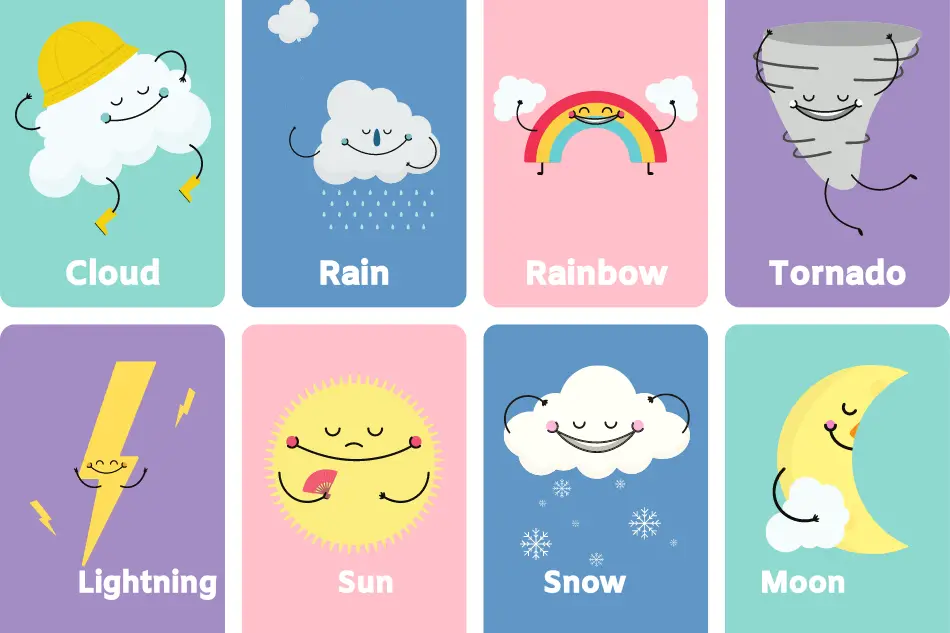
If we see any changes in the weather or we notice anything significantly different, we usually talk about them. However, we also talk about it when we don’t find any way to start a conversation with someone or don’t see any other topic to discuss. In such situations, we usually ask people questions about the weather.
You may ask someone about the weather in person or over the telephone. Let’s see some examples that you can use to ask someone about the weather.
- How is today’s weather?
- What’s it like out?
- What’s it like out there?
- How do you see today’s weather?
- How is the weather today in your city?
- How was the weather yesterday in your neighborhood?
- Will it be sunny tomorrow? What do you think?
- How cold will this winter be? Any idea about the weather forecast?
- What is the weather like today?
- What was the weather like in your village?
- How was the weather there?
- Will it rain today?
- Nice day, huh?
- How has the weather been in your country recently?
- Is it hot outside today?
- Is it too cold outside today?
- Was there any snowstorm today?
- Does it snow too much in your area?
- Was there a storm this afternoon?
- Did it rain here yesterday?
- Is it going to rain later? What’s your thought?
Every year, the planet Earth primarily experiences four seasons—spring, summer, autumn, and winter. However, there are some countries where there could be some other seasons.
Spring is called the king of the seasons among the four seasons as the weather gets delightful and warmer compared to winter’s previous season. Trees and other plants grow new leaves. And then comes the summer—the hottest season. In Autumn, the weather gets mild, and winter is the coldest season.
In this section of the post, in the following table, we’ll learn some words/phrases that you can use to describe the weather for any particular season.
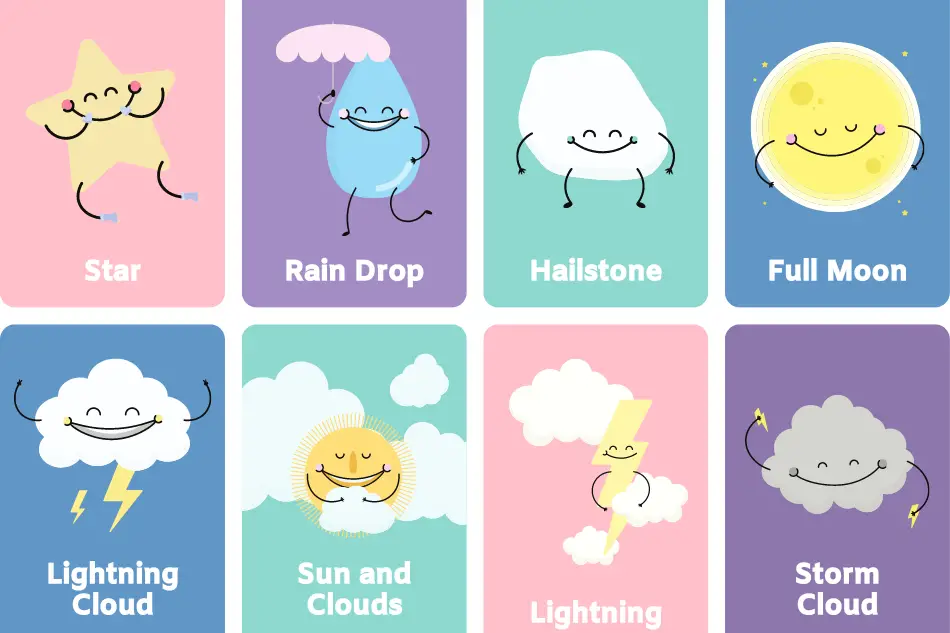
Guide to Talking about the Weather in Different Tenses
While discussing the weather, you may need to talk about today’s, tomorrow’s, or yesterday’s weather. In English grammar, there are different tenses. In this part of the post, we’ll learn how to discuss the weather in different tenses.
(Subject + present form of the verb + extension)
- It is cold today.
- It is scorching hot today.
- It is chilling cold today.
- The weather is misty here now.
- The sky is covered with clouds.
(Subject + helping verb + present form of the verb + ing + extension)
- It’s raining cats and dogs.
- It’s snowing.
- A heatwave is going on.
- It’s chilling outside.
(Subject + past form of the verb + extension)
- It rained yesterday.
- It was too hot last Wednesday.
- The city was covered with snow yesterday.
- There was a flash flood last year.
- The sky was clear yesterday.
(Subject + has/have been+ present form of the verb + ing + extension)
- It has been raining since morning.
- It has been snowing for the last two days.
- There has been scorching heat since last month.
(Subject + will + present form of the verb + extension)
- It will rain tomorrow.
- The temperature will be high tomorrow.
- It will be windy next Thursday.
- According to the weather forecast, there will be a flood next week.
- The country will encounter a cyclone at the end of this year.
Situation: Two coworkers, Jake and Mia, are at the office pantry, making coffee. They strike up a conversation about the sudden change in weather.
Jake: Wow, it’s really pouring outside, isn’t it?
Mia: It sure is. I didn’t expect rain today. The morning started off so sunny and clear.
Jake: That’s true. I heard there’s a cold front coming through. We might even get some snow by the weekend.
Mia: Really? That would be something. I better get my winter gear ready then. Thanks for the heads-up!
Talking about the weather can be an excellent topic for small talk. While talking about the weather, you can use some adjectives to describe precisely what the weather is like.
In this post, I talked about everything in detail that can help you to talk about the weather. If you still have questions about this, you can comment below.
Happy learning.
1. Why is the weather a popular topic of conversation?
Discussing the weather is a neutral topic that provides an easy way to initiate or sustain a conversation, especially with acquaintances or strangers.
2. What are some common phrases to talk about the weather?
Phrases like “It’s a beautiful day,” “Looks like rain,” “It’s chilly outside,” or “I heard there’s a storm coming” are commonly used.
3. How can tone influence the way I talk about the weather?
Using a cheerful or conversational tone can make the discussion about the weather feel light and casual, making it a suitable icebreaker.
4. Can talking about the weather lead to deeper conversations?
Yes, discussing the weather can often segue into topics like plans for the weekend, outdoor activities, or personal experiences related to weather events.
5. How can I respond when someone comments on the weather?
Responses like “I know, right?”, “I love this kind of weather,” or “It’s quite a change from yesterday” can keep the conversation flowing.
6. Is it appropriate to complain about the weather?
While everyone has personal preferences, it’s good to be mindful of the tone and context. Light-hearted complaints can be relatable, but constant negativity might not be well-received.
7. How can I discuss weather predictions?
Phrases like “The forecast says it’ll clear up by afternoon” or “I heard we’re in for a cold spell” can introduce predictions.
8. Is it okay to talk about the weather in a professional setting?
Absolutely. Discussing the weather can be a suitable small-talk topic before delving into business matters or during breaks.
9. How can cultural nuances influence discussions about the weather?
In some cultures, talking about the weather is a staple of small talk, while in others, it might not be as common. Being aware of cultural norms can guide the conversation.
10. Are there any idioms or expressions related to the weather in English?
Yes, there are many idioms like “Under the weather” (feeling ill), “Break the ice” (start a conversation), or “It’s raining cats and dogs” (heavy rain).
Related Posts
How to express agreement in english: a complete guide, different ways to say “for example” in english, how to introduce yourself in english: formal and informal, alternate ways of asking “how was your day”, niaj a a khan.
Niaj A A Khan is an ESL Instructor with over 8 years of experience in teaching & developing resources at different universities and institutes. Mr. Khan is also a passionate writer working on his first book, "Learn English at Ease."
Leave a Comment Cancel reply
Save my name, email, and website in this browser for the next time I comment.
📖 Join our community - for free! 📖

Weather Vocabulary: How to Talk about the Weather in English
By: Author ESLBUZZ
Posted on Last updated: October 26, 2023
Sharing is caring!
Below is the list of common phrases showing how to talk about the weather in English you should learn. Talking about the weather can be a good way to strike up a conversation with just about anyone, even complete strangers.
How to Talk about the Weather in English
Conversation starters.
- Beautiful day, isn’t it?
- Can you believe all of this rain we’ve been having?
- It looks like it’s going to snow.
- We couldn’t ask for a nicer day, could we?
- How about this weather?
- Did you order this sunshine?
- It’s so nice out today, isn’t it?
- The weather’s nice today, right?
- So hot for this time of year.
- I heard it’s supposed to be sunny tomorrow. That’s good, right?
- Wow, it’s really (Raining/pouring) out today! Did you get caught in the rain?
- I can’t believe the fog! Did you have a hard time driving today?
- It’s freezing out today. Do you think it will snow?
Some Answers to Describe the Weather
- It’s freezing outside!
- It’s a bit chilly. Wrap up warm.
- It’s cold.
- It’s Arctic out there.
- It’s quite fresh – take a jumper.
- You can see your breath in the air.
- It’s below zero.
- It must be minus five or more.
- It’s pretty frosty today.
- My car’s iced up, it’s that cold.
- It’s nice and warm today.
- We’re having a heatwave !
- It’s so hot! It must be over 80.
- It’s nice in the sun.
- The weather’s lovely.
- It’s a lovely day.
- It’s absolutely boiling!
- It’s positively tropical today.
In the end remember that you can always start a conversation with someone by making a remark about the weather. Try to use this to interact with others, especially people you don’t know.
How to Talk about the Weather | Image

Weather Vocabulary
These are some of the words we use to talk about the weather.
- Sunny (having a lot of light from the sun)
I hope it’s sunny tomorrow.
- Cloudy (water in the sky that appears as a white or grey mass)
Tomorrow, it will be cloudy and cool.
- Stormy (with strong winds, heavy rain, and dark clouds)
The sky was starting to look stormy.
- Dry (having very little rain or moisture)
Eastern areas should stay dry tomorrow.
- Muggy (muggy weather is unpleasantly warm and the air seems wet)
It was a warm muggy afternoon, and it looked like it would rain.
- Raw (very cold)
She shivered in the raw morning air.
- Misty (misty weather is weather with a lot of mist)
It was a gray and misty spring morning.
- Balmy (warm and pleasant)
The sun had lost its fierce heat and the air was golden and balmy.
- Clear (when the sky is blue because no clouds are blocking the sun)
The skies were clear and blue.
- Frosty (extremely cold)
They were both shivering slightly from the frosty air.

- Recent Posts
- Plural of Success in the English Grammar - November 15, 2023
- Plural of Canvas: How to Use It Correctly in English Grammar - November 7, 2023
- Plural of Prince: A Quick Guide for English Learners! - October 3, 2023
Related posts:
- Useful Phrases Describing the Weather in English
- How to Describe a Person’s Appearance in English
- 100+ Useful Words and Phrases to Write a Great Essay
- How to Express and Accept an Apology in English
Wednesday 24th of March 2021
Amazing work! Thank you!
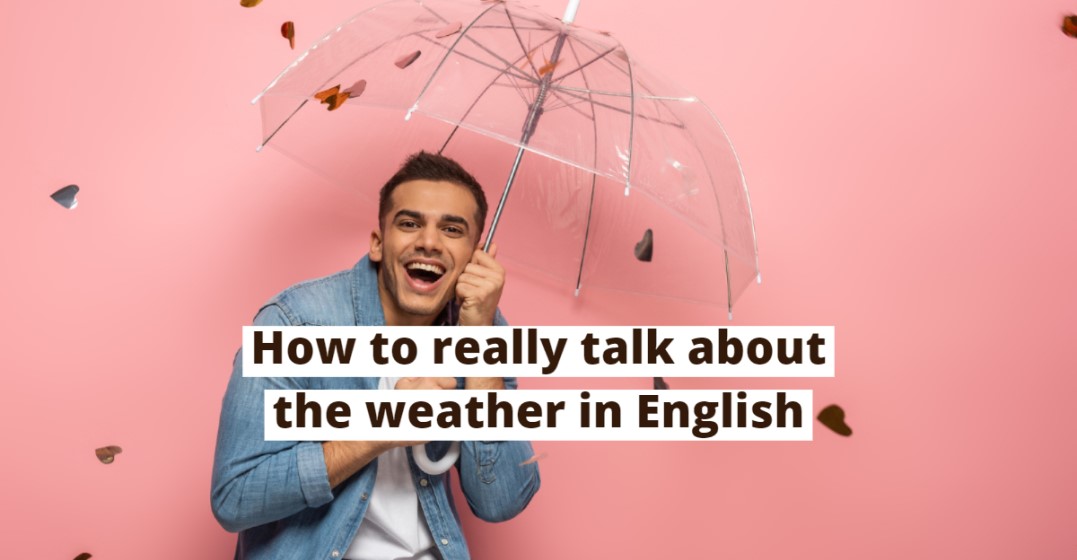
How to talk about the weather in English
by Adriana Stein
Published on January 20, 2020 / Updated on November 10, 2022
If you’re searching for the easiest topic for small talk, talking about the weather is the perfect default – and not only with native English speaking countries, but for anyone you speak English with. Weather is one of the first topics you’ll learn in an English class so the vocabulary is quite easy, plus it’s a topic that everyone can share their opinion about without offending anyone. So, if you meet someone new and have no idea what to say, start talking about the weather!
Start your journey to reach fluency
General weather vocabulary.
Here is an overview of popular weather vocabulary :
Weather grammar
Now we can go over the basics of weather grammar. There are three different weather-related grammar categories for talking about the weather in the present tense :
When talking about weather in the past, the grammar follows the same basic grammar rules for past tenses , with the exception that we typically don’t use present perfect simple to describe the weather.
Furthermore, there are also two different ways of describing weather in the future:
Describing the exact temperature
There are also differences in how to describe the temperature in different countries due to the the use of the imperial and metric measurement systems.
The majority of countries in the world use the metric system. For example, in the UK they would say, 20 degrees is a normal room temperature. It is very cold out, minus 5 degrees.
In the US here would be the difference: 70 degrees is a normal room temperature. It is very cold out, negative 23 degrees. Note the word “negative” here for US English. If you visit America, make sure to use the imperial system, because otherwise they might have trouble understanding you.
There are further general differences between US and UK English , which you can learn with Lingoda Sprint .
Phrases for starting a conversation about weather
Now we can go over how to put this vocabulary and grammar into actual phrases for starting small talk conversations about the weather. Here’s a helpful list to get you started:
- “Can you believe all this snow (replace with other weather type) we’ve been having?”
- “Did you order such great (replace with other positive weather adjective) weather?”
- “Such a beautiful day today, isn’t it?”
- “Man this weather lately is rough.”
- “How are you holding up through all this snow (replace with other negative weather adjective)?”
- “This sun is just what the doctor ordered!”
- “Are you a cold weather or hot weather person?”
- “I love this sunny weather, how about you?”
- “What’s the weather like where you’re from?”
- “Did you survive this cold winter (replace with other negative weather type)?”
Adriana Stein
Adriana Stein is an Online Marketing Consultant based in Hamburg, Germany. Originally from a small town in Oregon, USA, she decided to move to Hamburg in early 2016 after falling in love with the city during a study abroad.

Mar 26, 2024
54 French words used in the English language
We’ve written a lot of language guides here at Lingoda, but this one might be the crème de la crème....

27 interjections in English to make you sound like a native speaker
Do you want to learn about interjections in English? If your first thought is, “huh?”, you’re already on the right...

Mar 25, 2024
Colors in English: How to describe different hues and shades
From the crisp blues of the morning sky to the reddish shades at sunset, from the bright yellows of the...
Level up your language skills with Lingoda. Take our placement test for free and get started.

Weather Vocabulary
These are some of the words we use to talk about the weather. You can test your understanding with the EnglishClub Weather Vocabulary Quiz .
The Weather
English vocabulary.
The Weather in English
In English, we usually use it is when we talk about the weather. This is normally: It is + adjective OR It is + verb-ing
It is + adjective = A description of the weather
- It is sunny today.
- It's hot and humid today.
- It's a nice day today.
We can also say: It is a + adjective + day (or morning/afternoon/night)
- It's a fine day.
- It's a windy afternoon.
It is + verb-ing = This type of weather is happening now.
- It's drizzling outside.
- It's snowing.
- Take an umbrella, it's raining.
You can also use it is in different tenses
- It was cold yesterday.
- It will be cloudy tomorrow.
When you are learning vocabulary about the weather, it is important to remember that some of the words have a noun form, a verb form and/or an adjective form. For example:
- Rain: (noun) The game was cancelled because of the rain .
- Rain: (verb) I think it is going to rain later.
- Rainy: (adjective) It's a rainy day.
It pays to learn the different forms of each word and when they are used.
Nouns and Adjectives Many times when we are talking about the weather, we can add the letter Y to the end of a noun to make it an adjective.
- rain (noun) - rainy (adjective)
- sun (noun) - sunny (adjective)
- wind (noun) - windy (adjective)
- cloud (noun) - cloudy (adjective)
- fog (noun) - foggy (adjective)
Questions about the weather
People commonly ask about the weather by saying:
- What's it like out(side)?
- How's the weather?
- What's the weather like?
- What's the temperature?
- What's the weather forecast?
- What's the forecast for tomorrow?
Vocabulary about the weather in English
We have divided this vocabulary into different categories to make it easier. We have: Clear or Cloudy – Types of Rain – Cold stuff – Types of Wind – Mixed Vocabulary
Clear or Cloudy
Bright : (adjective) full of light; when the sun is shining strongly Sunny : (adjective) the sun is shining and there are no clouds Clear : (adjective) without clouds Fine : (adjective) not raining, clear sky Partially cloudy : (adjective) when there is a mixture of both blue sky and clouds Cloudy : (adjective) with many clouds in the sky Overcast : (adjective) covered with cloud; dull Gloomy : (adjective) with dark clouds and dull light; some people consider this weather depressing
Sometimes the cloud lowers to ground level and it becomes harder to see… Fog (noun)/ foggy (adjective): thick cloud close to land Mist (noun) / misty (adjective): light fog, often on the sea or caused by drizzle Haze (noun) / hazy (adjective): light mist, usually caused by heat
Types of Rain
Damp: (adjective) slightly wet (often after the rain has stopped) Drizzle: (verb/noun) to rain lightly with very fine drops Shower: (noun) a short period of rain Rain: (verb/noun) water that falls from the clouds in drops Downpour: (noun) heavy rain Pour: (verb) to have heavy rain It's raining cats and dogs: (Idiom) To rain heavily Torrential rain: (noun) very heavy rain Flood: (verb/noun) to become covered in water usually due to excessive rain
Blizzard : (noun) severe snowstorm with strong winds Frost : (noun) a layer of small ice crystals that forms on the ground or other surfaces when the temperate is cold Hail : (verb) when frozen rain falls as small balls of ice (hailstones). Hailstones : (noun) the small hard balls of ice that fall from the sky Snow : (noun/verb) frozen rain that falls from the sky as soft snowflakes Snowflake : (noun) an individual piece of snow Sleet : (noun/verb) snow or hail mixed with rain (often with some wind)
Types of Wind
Breeze: a gentle wind (often nice or refreshing) Blustery: blowing (strong) gusts of wind Windy: continual wind. Gale: a very strong wind Hurricane/cyclone/typhoon : a spiral arrangement of thunderstorms that produce winds and heavy rain.
What's the difference between a hurricane, a typhoon and a cyclone? They are the same thing just with different names because of the region they are in. Atlantic/Northeast Pacific = a hurricane Northwest Pacific = a typhoon Southern Hemisphere = a cyclone
Tornado : (noun) strong violent circular winds in a small area; a rapidly revolving column of air In United States the word twister is often used instead of tornado .
The Temperature in English
We have created an entire page about the temperature in English including the different ways of saying how hot or cold it is.
More vocabulary about the weather
Drought : (noun) Long periods of time without rain causing a lack of water in the area
- A lot of the crops dried up because of the drought .
Forecast : (noun) A prediction of how the weather will be on a certain day
- The forecast says it's going to rain tomorrow.
Lightning : (noun) A flash of light in the sky during a storm.
- Lightning lit the sky many times that night.
Puddle : (noun) a small pool of water on the ground, usually after rain.
- The kids jumped in the puddles on the way home from school.
Rainbow : (noun) an arch of colors in the sky formed when the sun shines through rain
- I took a photo of a beautiful rainbow that was just above the lake.
Smog : (noun) a cloud of pollution hanging over a city (a fog of smoke)
- The view of the city wasn't very good because it was covered in thick smog .
Storm : (noun) a combination of strong winds and rain, often with thunder and lightning, and in some occasions snow.
- It is too dangerous to go fishing because of the storm .
Sunshine : (noun) the light and heat of the sun
- I could feel the warm sunshine on my back.
Thunder : (noun/verb) the rumbling sound in the clouds that happens after lightning
- The cat hid under the bed because it was scared by the thunder .
Sentences using weather vocabulary
- It is usually chilly and damp in autumn, sometimes with rain or drizzle.
- I'm so glad there is a breeze right now otherwise it would be very hot.
- It is so humid that I've had to change my shirt twice already.
- It's a blustery day; make sure your umbrella doesn't blow away.
- Take a sweatshirt because it's a little chilly outside.
- Those large hailstones left dents in my car.
- There has been a gale warning so it's not safe to go out fishing on our boat.
- There was a drought in our province last summer. It didn't rain for three months.
- We won't be able to see the solar eclipse because it's overcast .
Questions using weather vocabulary
- What's the weather like in Buenos Aires in January?
- How's the weather in Moscow in winter?
- It's pretty hot. What's the temperature?
- Is it raining outside?
Next Activities
Check out our list of idioms about the weather
See how to talk about the temperature in English
GAMES: Try our game about a weather forecast and also about Weather Idioms
How's the weather today where you live?
If you found this English Vocabulary about The Weather interesting or useful, let others know about it.
Vocabulary Notes
A variety of different English vocabulary topics including common words lists, charts and example sentences.
Learn Vocabulary
Vocabulary Games
Improve your English with our interactive English vocabulary games. There are many different topics and levels.
Play our Games
Connect with us
45 WAYS TO TALK ABOUT THE WEATHER IN ENGLISH

Even if you need English for business, you need to know how to have a conversation about general topics in English.
The weather is one of the most common general topics, especially for English and Irish people, as we often have 4 seasons in one day!
Knowing how to describe different types of weather can help you chat with native speakers and understand weather forecasts.
Let's dive into some ways to talk about the weather in English:
10 questions to ask about the weather in English:
646e4df71e55c_lg.png)
1. What's the weather like today?
2. How's the weather looking for this weekend?
3. Is it hot/cold outside?
4. Do you know if it's going to rain later?
5. How's the temperature today?
6. Is there a chance of snow tomorrow?
7. Did you hear about the storm that's coming?
8. What's the forecast for the rest of the week?
9. Has it been raining a lot lately?
10. Are we expecting any extreme weather conditions?
Practice your questions in English with this video:

Describing Sunny Weather:
646e4e2f15997_lg.png)
- It's a beautiful day.
- The sun is shining.
- It's perfect for being outside.
- It's warm.
- It's hot.
- It's scorching (very hot).
Describing Cloudy Weather:
646e4e6bad934_lg.png)
- It's overcast.
- The sky is grey.
- It looks like it might rain.
- It looks like a storm is coming.
Describing Rainy Weather:
646e4f044534c_lg.png)
- It's raining.
- It's pouring.
- It's drizzling.
- It's pouring down.
- The rain is battering against the window.
Describing Snowy Weather:
646e4f30b81ca_lg.png)
- It's snowing.
- It's a winter wonderland.
- The ground is covered in snow.
- It's freezing.
- It's bitterly cold.
Describing Windy Weather:
646e4f5e3ad14_lg.png)
- It's windy.
- The wind is howling (when it makes a noise, like the sound of a wolf).
- It's gusty outside.
- It's blustery.
- It's blowing a gale.
Describing Foggy Weather:
646e4f8dccb0f_lg.png)
- It's foggy.
- The visibility is low.
- It's hard to see.
- You can't see your hand in front of your face.
Here is an example of a conversation about the weather in English.
646e4fb97c3e7_lg.png)
Person 1: Hey, how's it going?
Person 2: Not too bad, thanks. How about you?
Person 1: I'm doing alright. Did you see the weather forecast for this weekend?
Person 2: No, I haven't. What's it looking like?
Person 1: It's supposed to be sunny and warm on Saturday, but there's a chance of rain on Sunday.
Person 2: Oh, that's too bad. I was hoping to go for a hike on Sunday.
Person 1: Yeah, it's not looking great. But at least we'll have one nice day this weekend.
Person 2: That's true. I'll have to make the most of it and go to the beach or something.
Person 1: Definitely. It should be perfect weather for that.
Conclusion:
Knowing how to describe different types of weather in English is an important skill.
Review these expressions, practice them out loud, and try to have conversations with people in English to practice.
Practice your business English with our 100% Speaking classes:
- Small groups allow you more speaking practice
- 100% speaking lets you practice grammar, vocabulary, and pronunciation - and being assertive!
- Fun and fast-paced, taking advantage of every moment
- Access to our online learning academy
- More information here:
FAST TRACK CLASSES
Categories: Grammar & Vocabulary
© 2024 ingles con killian
- Terms & Conditions
- Privacy Policy
- Cookie Policy

Sign up for our newsletter!
Want to stay up-to-date on industry trends?
Speak Fluent English: How to Talk about the Weather in English

The weather is one of the most common small talk topics in English. People often talk about the weather when they do not know what else to talk about.
Since this is a topic that comes up quite frequently, it is important that we be able to speak comfortably and fluently about this topic.
In this lesson, we will go over some useful sentences and questions to use when talking about the weather.
1. We can ask another person about the weather in any verb tense. Meaning we can ask about today’s weather, tomorrow’s weather, yesterday’s weather, etc.
- How is the weather today?
- What is the weather like today?
- What was the weather like on your vacation last week?
- What will the weather be like tomorrow?
- What is the weather tomorrow?
- How has the weather been in your country recently?
We often ask about what the news says about the weather. Many times, in these sentences we use the pronoun “they” for the news organization.
- What do they say the weather will be like tomorrow?
We can also use yes/no questions to ask more specific questions.
- Will it rain tomorrow?
- Is it hot today?
- Is it cold outside?
- Did it snow earlier?
- Was there a storm this morning?
- Is it going to rain later?
- Is it going to be humid today?
2. When we are describing the weather, it is very common to use an adjective.
- It is very hot.
- It is cold.
- It is snowy.
- It is rainy.
- It is sunny.
- It is humid.
- It was foggy this morning.
- It will be scorching this afternoon.
- It is going to be freezing tonight.
We can use the verb forms “to rain” and “to snow”.
- It is snowing.
- It snows a lot in my home country.
- Will it snow tomorrow?
- It is going to rain later.
- I don’t like it when it rains.
- Is it raining now?
3. When we are talking about major weather events or natural disasters, then we often use sentences that start with “there”.
- There was a big snow storm.
- There was a thunderstorm.
- I hope that there isn’t an earthquake.
- It is raining so much. There might be a flood.
- There might be a blizzard tomorrow.
If we want to add more information, then just start a new sentence.
- There was a big storm. It rained all day and caused flooding in my town.
- There was a snowstorm yesterday. However, everything looked beautiful outside after the storm.
There are some other ways that we can talk about these weather events.
- It is possible that a storm will hit our town tonight.
- A blizzard is coming.
- A typhoon is approaching the Philippines.
- The storm caused a lot of damage.
4. Here are some expressions that we can use to talk about the summer.
- It is very humid today.
- Summer is the rainy season in my country.
- It is dry in the summer where I am from.
- The temperature often reaches 40 degrees Celsius in the summer.
- Most people avoid going out in the afternoon in the summer because it is too hot.
Here are some other ways to say “hot”.
- It is burning hot.
- It is scorching.
- It is a scorcher today.
- It is boiling hot today.
- I am burning up.
- I am roasting.
5. Here are some expressions that we can use to talk about the fall. We can use “fall” or “autumn”. They mean the same thing.
- Fall is beautiful in my country.
- The weather is cool.
- The air is clean.
- The sky is clear and beautiful.
- The leaves change colors.
- The leaves look amazing.
- The weather cools down.
- It is hot in the afternoon, but cool in the morning and at night.
- People love to spend time outdoors in the autumn.
- It doesn’t rain a lot in the fall where I live.
- Autumn is by far my favorite season because the weather is perfect.
6. Here are some expressions that we can use to talk about winter.
- It snows a lot in the winter here.
- It doesn’t snow much in the winter in my hometown, but it gets very cold.
- The roads are often icy in the winter, so be careful if you are driving.
- People mostly stay inside during the winter.
- The winter is not bad in my country.
- It is not cold in the winter in my country.
Here are some other ways to say “cold”.
- It is freezing.
- I am freezing.
- I am freezing to death.
- It is frigid.
- My hands are frozen.
- My nose is frozen.
7. Here are some expressions that we can use to talk about spring.
- I love the spring because the flowers bloom in the spring.
- I think that spring is the most beautiful season.
- It rains a lot in the spring.
- People become more active in the spring.
- The weather starts to warm up in the spring.
- March and April are still a little cold, but by May it is warm.
This lesson can help you become a natural English speaker. There are certain situations when the language that you learned in this English lesson can be very useful. Try to use one of these phrases or expressions the next time you speak English.
Speak Fluent English Index
Talk into – Conversation Practice
Speaking level 1: i thought…, you may also like, speak fluent english: how to show you are telling..., useful apps to learn english for android, speak fluent english: how to agree in english, speak fluent english: 11 ways to say sick, speak fluent english: 13 ways to say tired, speak fluent english: 18 ways to say busy, speak fluent english: how to give an opinion in..., speak fluent english: 7 ways to say you do..., speak fluent english: how to ask for somebody’s opinion..., speak fluent english: how to say no politely in..., leave a comment cancel reply.
Save my name, email, and website in this browser for the next time I comment.

Basic English Speaking Practice by Topic – Full Lesson List
Download Full Lessons Package – Daily English Conversation by Topic (mp3+pdf)
Listening is THE KEY to better English speaking . The more REAL English conversations you listen to, the more fluent you will become, to be sure.
For a small one-time investment, you can get the whole package of 75 lessons. Put it into your phone or MP3 Player and take your English learning ANYWHERE.
You can learn English on the bus while going to work. You can learn English while exercising or walking. You can learn English while shopping. You can learn English while sitting at a coffee shop, etc.
Remember, DEEP LEARNING is the No. 1 secret to English fluency . If you want to speak English fluently and automatically, you have to repeat the same lesson over and over again until you MASTER it.
WHAT YOU WILL GET:
- 75 mp3 files for 75 lessons (each lesson lasts for 1 -2 minutes).
- 1 pdf file for lesson transcript (79 pages).
Take advantage of your short free time during the day to do a lot of repetition, and you will be amazed at how fast your English speaking improves . Get started today!
P/S: If you want to download more lesson packages with a discounted price, check out 0ur Resources Page here .
Related Lessons
Plastic Surgery
Handcraft Items
Technological Advancements
A Health Problem
A Celebrity
A Creative Person
Leave a Reply:
Save my name, email, and website in this browser for the next time I comment.
English for Kids. FREE playlearning™ content curated by the Lingokids educators team.
English for kids
Free Playlearning™ content curated by the Lingokids educators team.

The weather
Teaching kids about the weather is a great way to introduce them to science and help them understand their surroundings. here you'll find fun activities and games to help them learn about this important topic..
The weather is an important topic for kids no matter where they live. It could be in the coldest place , or maybe in a more tropical zone . As they grow up, children start to recognise the different temperatures throughout the year, as they set out on a journey to look for signs of rainstorms, or wait for spring to come.
There are lots of reasons that make learning weather related words at a young age important. By doing this, kids learn to i dentify the different environmental changes and patterns that occur in their surroundings and it’s also a great way to introduce simple science concepts into their lives, which will be relevant for their future education.
Additionally, it’s essential that all children learn to be cautious when weather changes might be dangerous, like during severe storms or intense summers. Fortunately, teaching kids about this topic can be really fun .
Here you’ll find a list of weather vocabulary in English and also some fun activities and games to help the little ones start learning about the weather.
Weather Vocabulary

sleet /cloud / rainbow / sun / fog
mist / frost / drizzle / showers
flood / downpours / hail / heavy rain
snowflake / breeze / hurricane / cyclone
typhoon / tornado / thunder / drought
forecast / lightning / haze / hailstone
blizzard / sunshine / smog / light rain
Weather Adjectives

chilly / gloomy / foggy / clear / icy
cold / hot / humid / warm
hazy / misty / damp / frosty
Weather and seasons vocabulary cards

To further practice the weather vocabulary, take a look at the different seasons of the year , this way your little one will be able to relate the different weather conditions to each one of them. Let’s keep learning!
Is your child ready to start Playlearning™?
Jumpstart your child’s Playlearning™ adventure by downloading the Lingokids app!
📣 Sharing is caring!
Related content.

Feelings and emotions

Don’t miss our top content…

Seasons of the year

- For Business
- Resources for Parents
- EU's Horizon
- Proven Results
- Help Center
- Terms of service
- Privacy Policy
- Cookie Policy
- Redeem your Oxford Code
We are social

Lingokids Gift Cards
Lingokids Store
Severe weather, possible tornadoes headed toward Heartland and Midwest: What to expect
Damaging winds, large hail and tornadoes are possible.
Severe weather is in the forecast for the Heartland and the Midwest, with damaging winds, large hail and even a few strong tornadoes possible.
On Monday, severe thunderstorms are expected from Texas to West Virginia, with the greatest tornado threat from Oklahoma to Missouri.
The Ohio River Valley from Louisville, Kentucky, to Cincinnati could also see tornadoes, but the threat there is not as high.

On Tuesday, as the storm moves east, the severe weather will concentrate from Mississippi to West Virginia, with the highest tornado threat from Tennessee to Kentucky.
Meanwhile, a flood watch has been issued from Indiana to Maryland, where some areas could see up to 5 inches of rain over the next few days.

Some of that rain will then spill into the rest of the Northeast.
The heaviest rain will reach the Interstate 95 corridor, from Philadelphia to New York City to Boston, on Wednesday. Flash flooding is possible.

3 life-saving tactics to use if in a car during a flash flood
By Wednesday, snow is in the forecast for Indianapolis, Chicago and Green Bay, Wisconsin.
On Wednesday evening, snow will hit inland Pennsylvania, upstate New York and New England. More than 1 foot of snow is possible from the northern Great Lakes into the New England mountains by Thursday.

Related Topics
Top stories.

Trump secures $175 million bond in New York civil fraud case
- Apr 1, 10:44 PM

Bankman-Fried speaks after sentencing: 'I'm haunted, every day, by what was lost'
- Apr 1, 11:38 AM

'Godzilla x Kong: The New Empire" roars to an $80 million box office opening
- Mar 31, 2:12 PM
Why April's total solar eclipse will be a historic event in the US
- 3 hours ago

Johnson calls Greene's move to oust him a 'distraction' for Republicans
- Apr 1, 1:29 PM
ABC News Live
24/7 coverage of breaking news and live events

The Effects of Climate Change
The effects of human-caused global warming are happening now, are irreversible for people alive today, and will worsen as long as humans add greenhouse gases to the atmosphere.
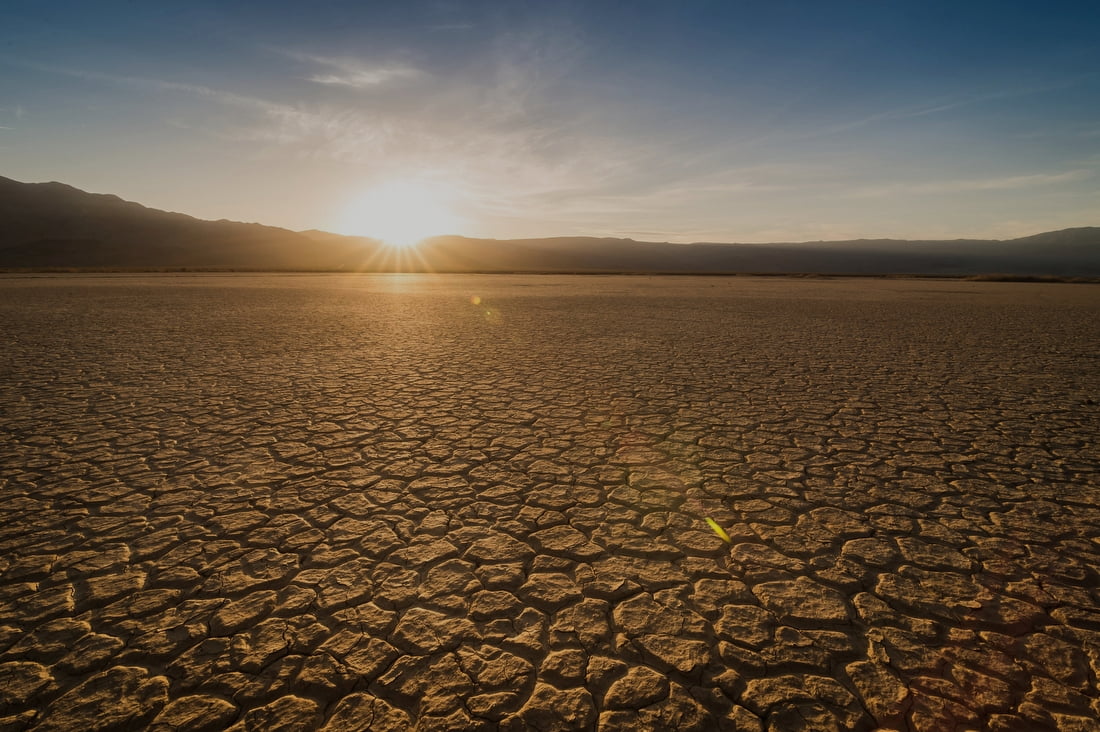
- We already see effects scientists predicted, such as the loss of sea ice, melting glaciers and ice sheets, sea level rise, and more intense heat waves.
- Scientists predict global temperature increases from human-made greenhouse gases will continue. Severe weather damage will also increase and intensify.
Earth Will Continue to Warm and the Effects Will Be Profound
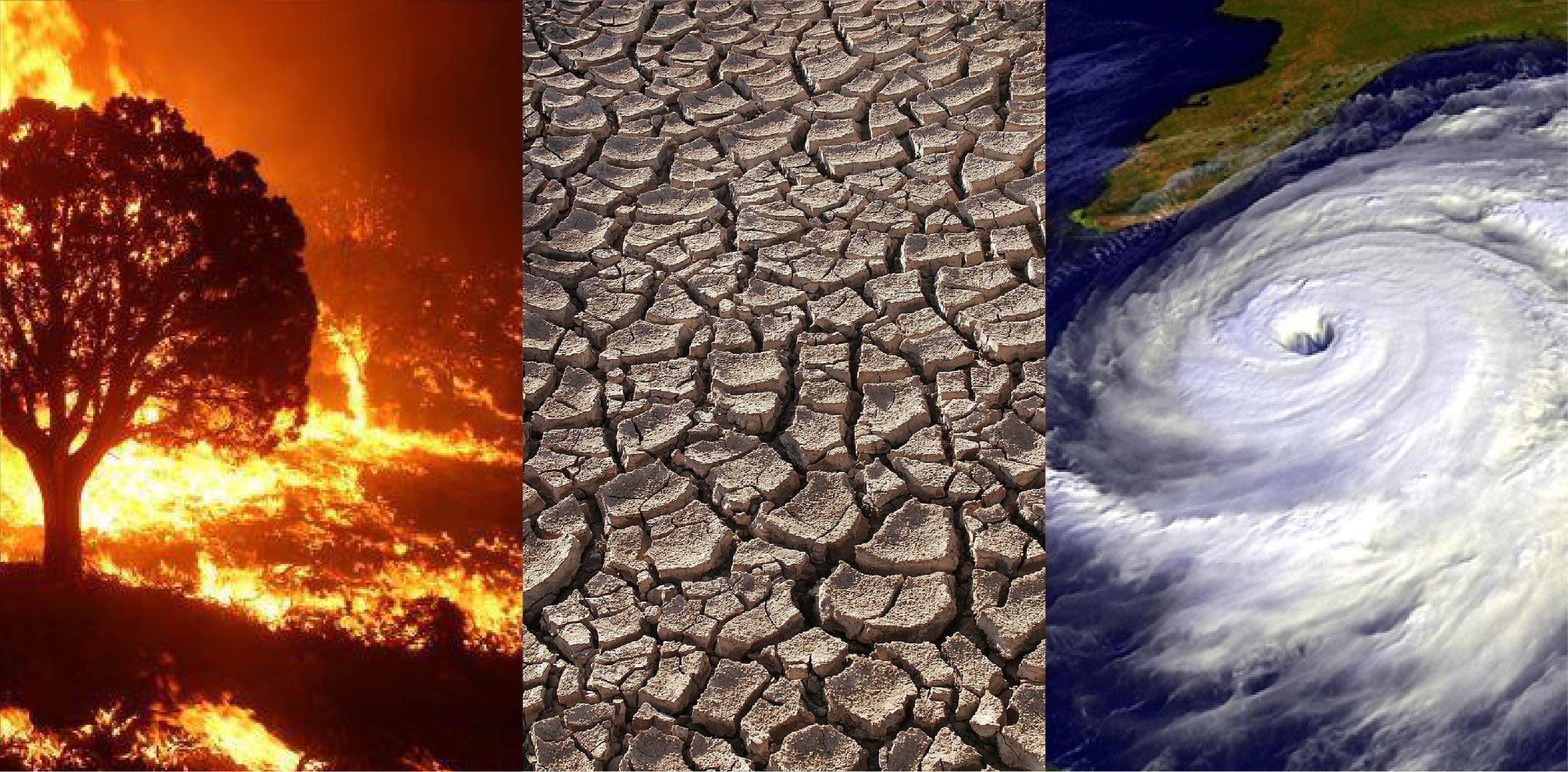
Global climate change is not a future problem. Changes to Earth’s climate driven by increased human emissions of heat-trapping greenhouse gases are already having widespread effects on the environment: glaciers and ice sheets are shrinking, river and lake ice is breaking up earlier, plant and animal geographic ranges are shifting, and plants and trees are blooming sooner.
Effects that scientists had long predicted would result from global climate change are now occurring, such as sea ice loss, accelerated sea level rise, and longer, more intense heat waves.
The magnitude and rate of climate change and associated risks depend strongly on near-term mitigation and adaptation actions, and projected adverse impacts and related losses and damages escalate with every increment of global warming.

Intergovernmental Panel on Climate Change
Some changes (such as droughts, wildfires, and extreme rainfall) are happening faster than scientists previously assessed. In fact, according to the Intergovernmental Panel on Climate Change (IPCC) — the United Nations body established to assess the science related to climate change — modern humans have never before seen the observed changes in our global climate, and some of these changes are irreversible over the next hundreds to thousands of years.
Scientists have high confidence that global temperatures will continue to rise for many decades, mainly due to greenhouse gases produced by human activities.
The IPCC’s Sixth Assessment report, published in 2021, found that human emissions of heat-trapping gases have already warmed the climate by nearly 2 degrees Fahrenheit (1.1 degrees Celsius) since 1850-1900. 1 The global average temperature is expected to reach or exceed 1.5 degrees C (about 3 degrees F) within the next few decades. These changes will affect all regions of Earth.
The severity of effects caused by climate change will depend on the path of future human activities. More greenhouse gas emissions will lead to more climate extremes and widespread damaging effects across our planet. However, those future effects depend on the total amount of carbon dioxide we emit. So, if we can reduce emissions, we may avoid some of the worst effects.
The scientific evidence is unequivocal: climate change is a threat to human wellbeing and the health of the planet. Any further delay in concerted global action will miss the brief, rapidly closing window to secure a liveable future.
Here are some of the expected effects of global climate change on the United States, according to the Third and Fourth National Climate Assessment Reports:
Future effects of global climate change in the United States:

U.S. Sea Level Likely to Rise 1 to 6.6 Feet by 2100
Global sea level has risen about 8 inches (0.2 meters) since reliable record-keeping began in 1880. By 2100, scientists project that it will rise at least another foot (0.3 meters), but possibly as high as 6.6 feet (2 meters) in a high-emissions scenario. Sea level is rising because of added water from melting land ice and the expansion of seawater as it warms. Image credit: Creative Commons Attribution-Share Alike 4.0
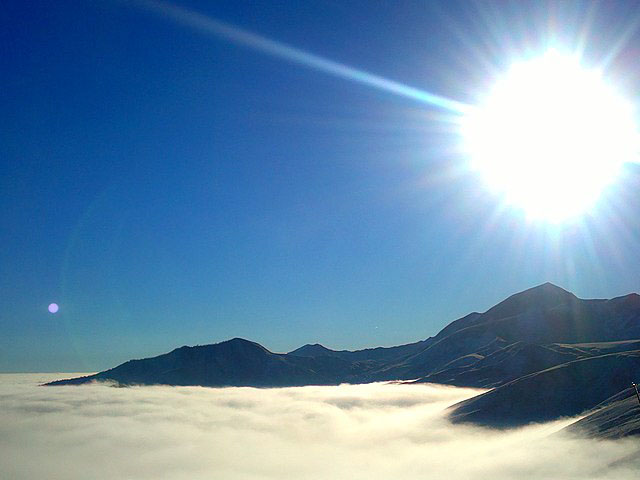
Climate Changes Will Continue Through This Century and Beyond
Global climate is projected to continue warming over this century and beyond. Image credit: Khagani Hasanov, Creative Commons Attribution-Share Alike 3.0
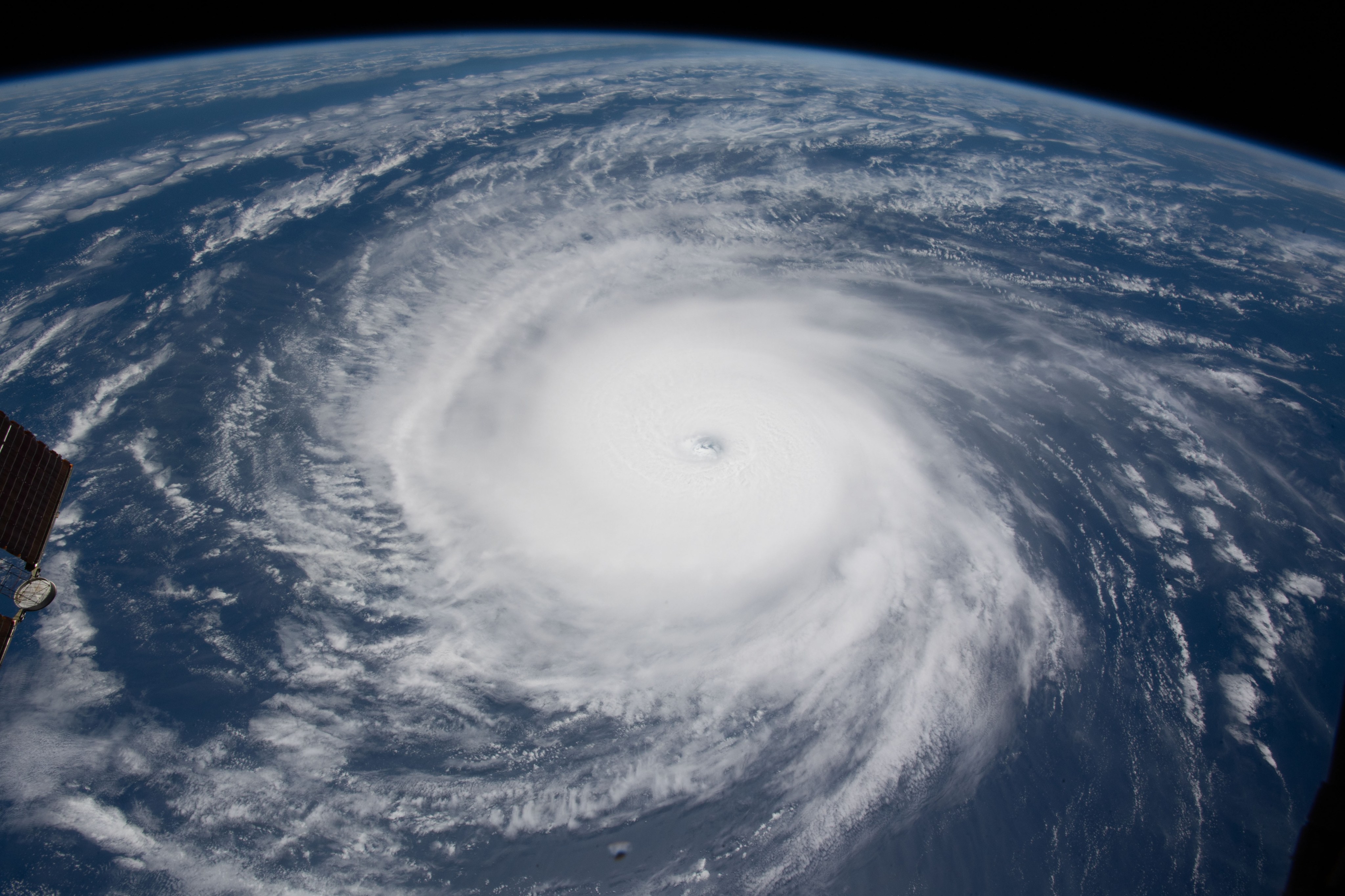
Hurricanes Will Become Stronger and More Intense
Scientists project that hurricane-associated storm intensity and rainfall rates will increase as the climate continues to warm. Image credit: NASA
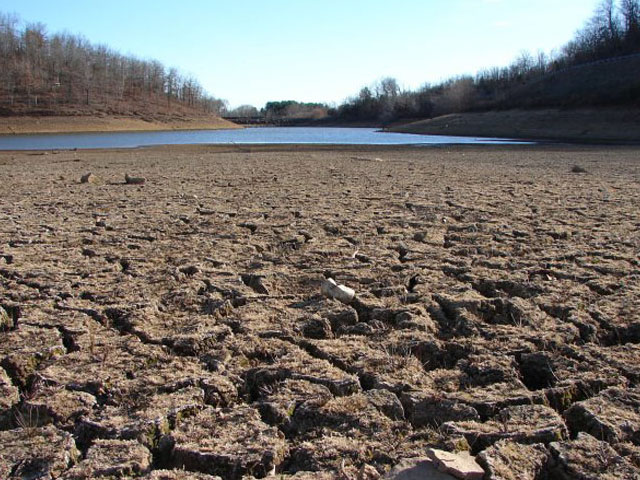
More Droughts and Heat Waves
Droughts in the Southwest and heat waves (periods of abnormally hot weather lasting days to weeks) are projected to become more intense, and cold waves less intense and less frequent. Image credit: NOAA
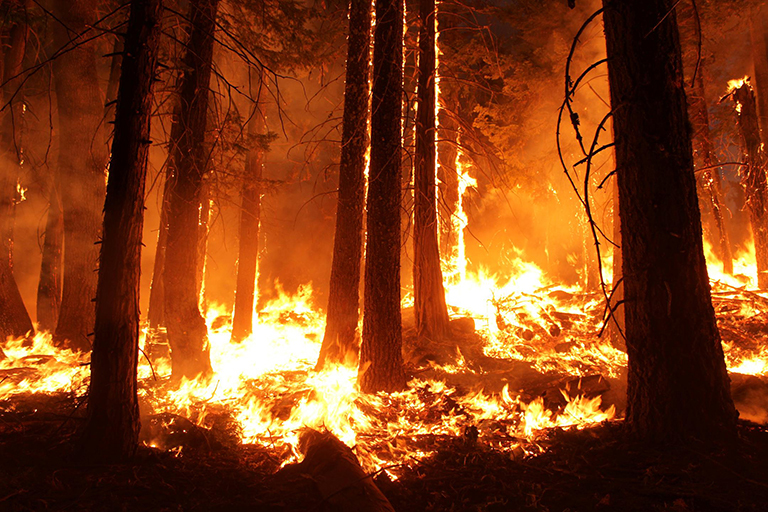
Longer Wildfire Season
Warming temperatures have extended and intensified wildfire season in the West, where long-term drought in the region has heightened the risk of fires. Scientists estimate that human-caused climate change has already doubled the area of forest burned in recent decades. By around 2050, the amount of land consumed by wildfires in Western states is projected to further increase by two to six times. Even in traditionally rainy regions like the Southeast, wildfires are projected to increase by about 30%.
Changes in Precipitation Patterns
Climate change is having an uneven effect on precipitation (rain and snow) in the United States, with some locations experiencing increased precipitation and flooding, while others suffer from drought. On average, more winter and spring precipitation is projected for the northern United States, and less for the Southwest, over this century. Image credit: Marvin Nauman/FEMA
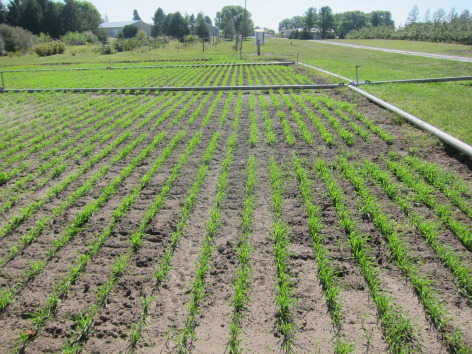
Frost-Free Season (and Growing Season) will Lengthen
The length of the frost-free season, and the corresponding growing season, has been increasing since the 1980s, with the largest increases occurring in the western United States. Across the United States, the growing season is projected to continue to lengthen, which will affect ecosystems and agriculture.
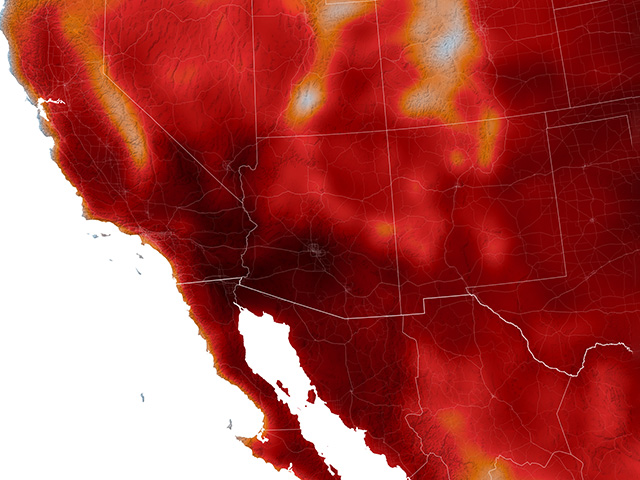
Global Temperatures Will Continue to Rise
Summer of 2023 was Earth's hottest summer on record, 0.41 degrees Fahrenheit (F) (0.23 degrees Celsius (C)) warmer than any other summer in NASA’s record and 2.1 degrees F (1.2 C) warmer than the average summer between 1951 and 1980. Image credit: NASA
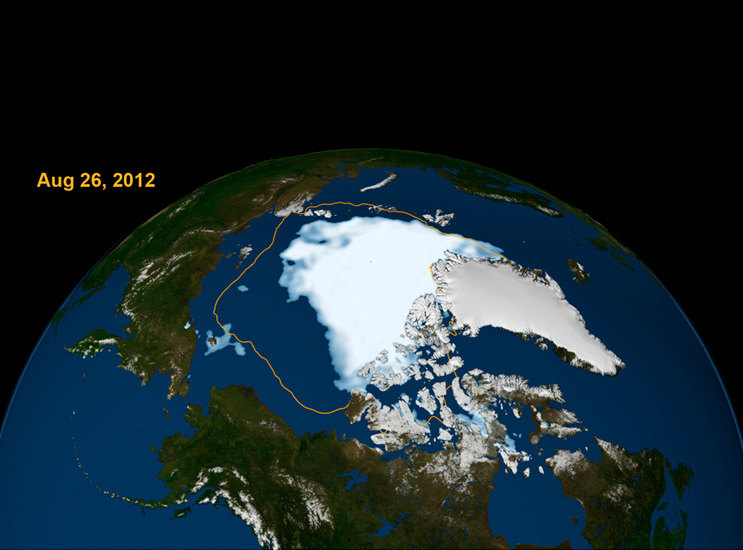
Arctic Is Very Likely to Become Ice-Free
Sea ice cover in the Arctic Ocean is expected to continue decreasing, and the Arctic Ocean will very likely become essentially ice-free in late summer if current projections hold. This change is expected to occur before mid-century.
U.S. Regional Effects
Climate change is bringing different types of challenges to each region of the country. Some of the current and future impacts are summarized below. These findings are from the Third 3 and Fourth 4 National Climate Assessment Reports, released by the U.S. Global Change Research Program .
- Northeast. Heat waves, heavy downpours, and sea level rise pose increasing challenges to many aspects of life in the Northeast. Infrastructure, agriculture, fisheries, and ecosystems will be increasingly compromised. Farmers can explore new crop options, but these adaptations are not cost- or risk-free. Moreover, adaptive capacity , which varies throughout the region, could be overwhelmed by a changing climate. Many states and cities are beginning to incorporate climate change into their planning.
- Northwest. Changes in the timing of peak flows in rivers and streams are reducing water supplies and worsening competing demands for water. Sea level rise, erosion, flooding, risks to infrastructure, and increasing ocean acidity pose major threats. Increasing wildfire incidence and severity, heat waves, insect outbreaks, and tree diseases are causing widespread forest die-off.
- Southeast. Sea level rise poses widespread and continuing threats to the region’s economy and environment. Extreme heat will affect health, energy, agriculture, and more. Decreased water availability will have economic and environmental impacts.
- Midwest. Extreme heat, heavy downpours, and flooding will affect infrastructure, health, agriculture, forestry, transportation, air and water quality, and more. Climate change will also worsen a range of risks to the Great Lakes.
- Southwest. Climate change has caused increased heat, drought, and insect outbreaks. In turn, these changes have made wildfires more numerous and severe. The warming climate has also caused a decline in water supplies, reduced agricultural yields, and triggered heat-related health impacts in cities. In coastal areas, flooding and erosion are additional concerns.
1. IPCC 2021, Climate Change 2021: The Physical Science Basis , the Working Group I contribution to the Sixth Assessment Report, Cambridge University Press, Cambridge, UK.
2. IPCC, 2013: Summary for Policymakers. In: Climate Change 2013: The Physical Science Basis. Contribution of Working Group I to the Fifth Assessment Report of the Intergovernmental Panel on Climate Change [Stocker, T.F., D. Qin, G.-K. Plattner, M. Tignor, S.K. Allen, J. Boschung, A. Nauels, Y. Xia, V. Bex and P.M. Midgley (eds.)]. Cambridge University Press, Cambridge, United Kingdom and New York, NY, USA.
3. USGCRP 2014, Third Climate Assessment .
4. USGCRP 2017, Fourth Climate Assessment .
Related Resources
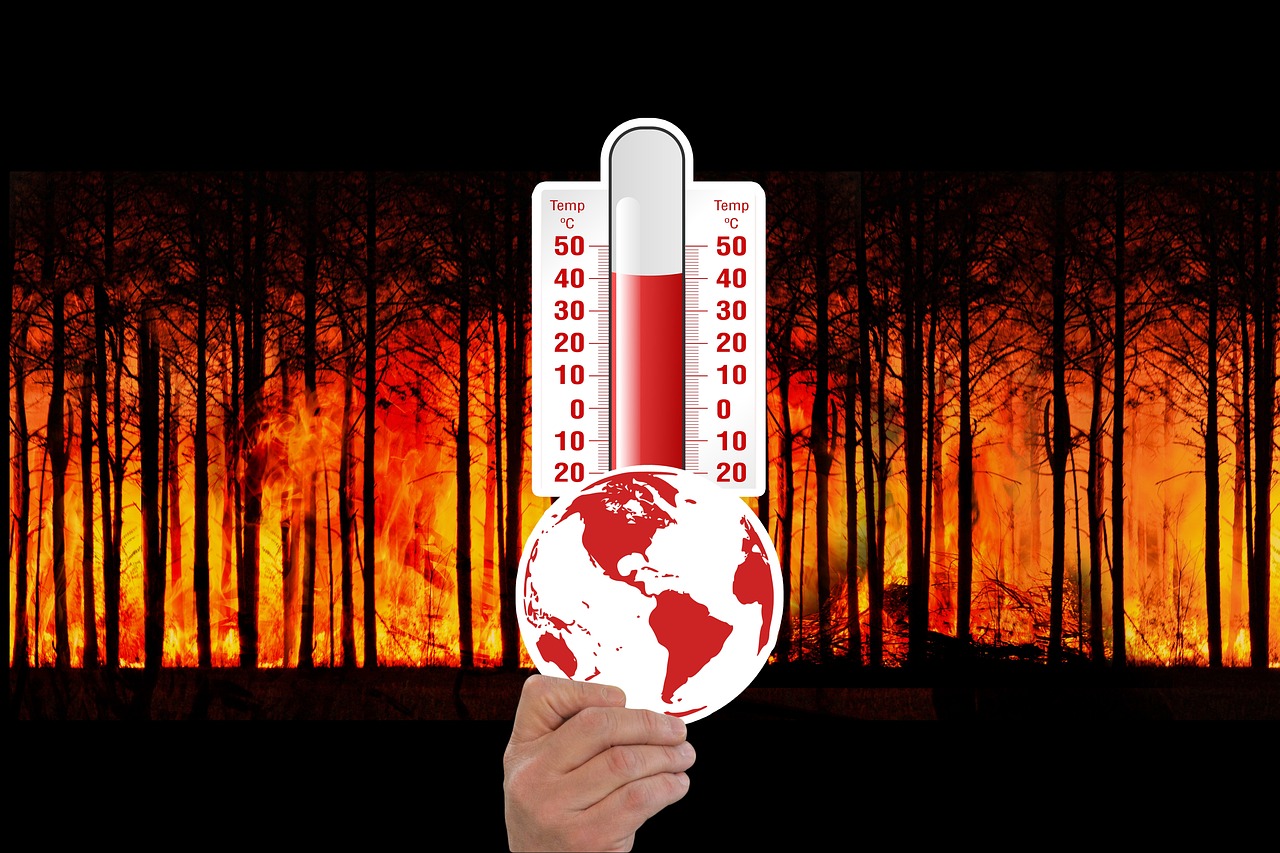
A Degree of Difference
So, the Earth's average temperature has increased about 2 degrees Fahrenheit during the 20th century. What's the big deal?
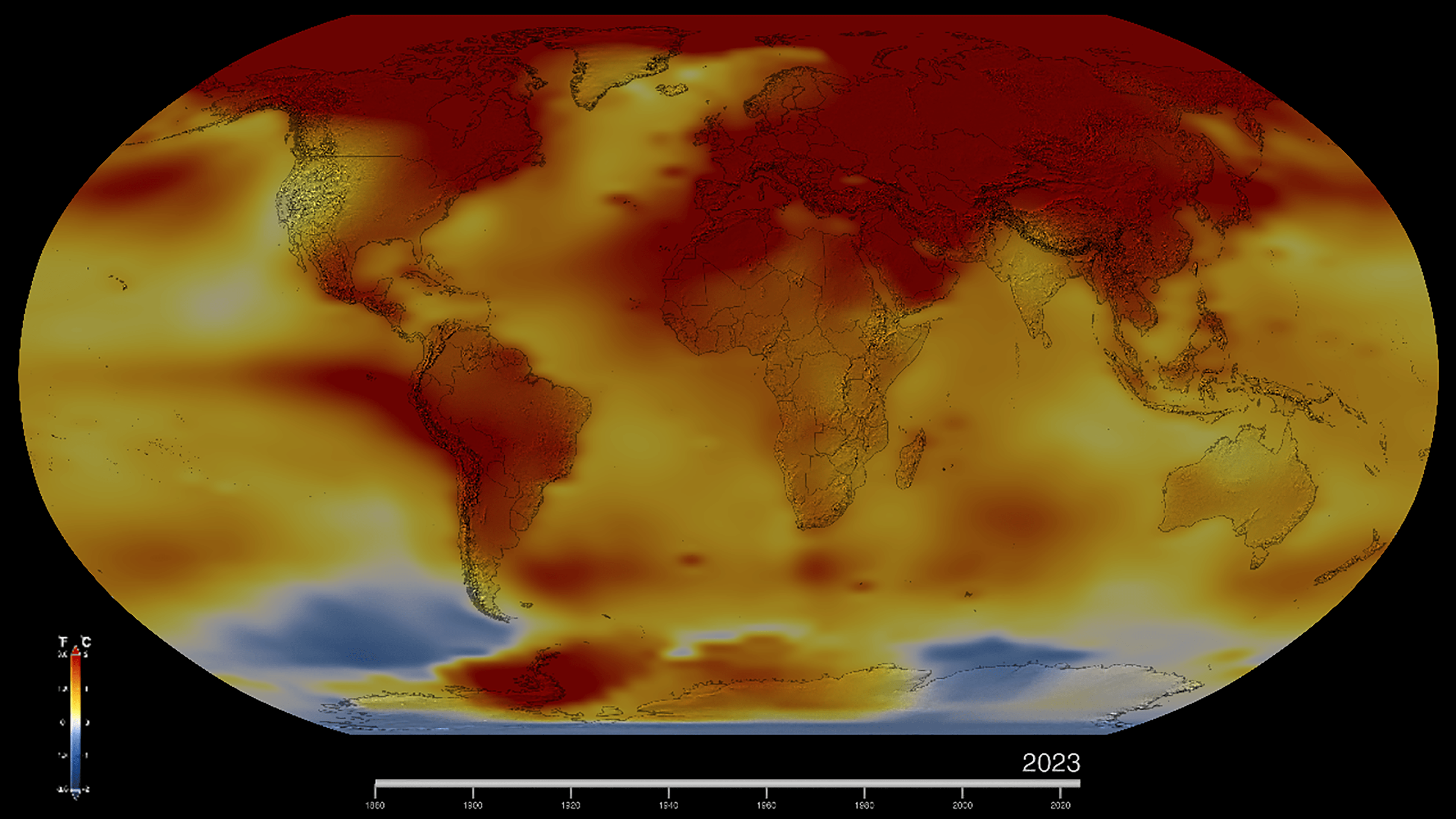
What’s the difference between climate change and global warming?
“Global warming” refers to the long-term warming of the planet. “Climate change” encompasses global warming, but refers to the broader range of changes that are happening to our planet, including rising sea levels; shrinking mountain glaciers; accelerating ice melt in Greenland, Antarctica and the Arctic; and shifts in flower/plant blooming times.

Is it too late to prevent climate change?
Humans have caused major climate changes to happen already, and we have set in motion more changes still. However, if we stopped emitting greenhouse gases today, the rise in global temperatures would begin to flatten within a few years. Temperatures would then plateau but remain well-elevated for many, many centuries.
Discover More Topics From NASA
Explore Earth Science

Earth Science in Action

Earth Science Data
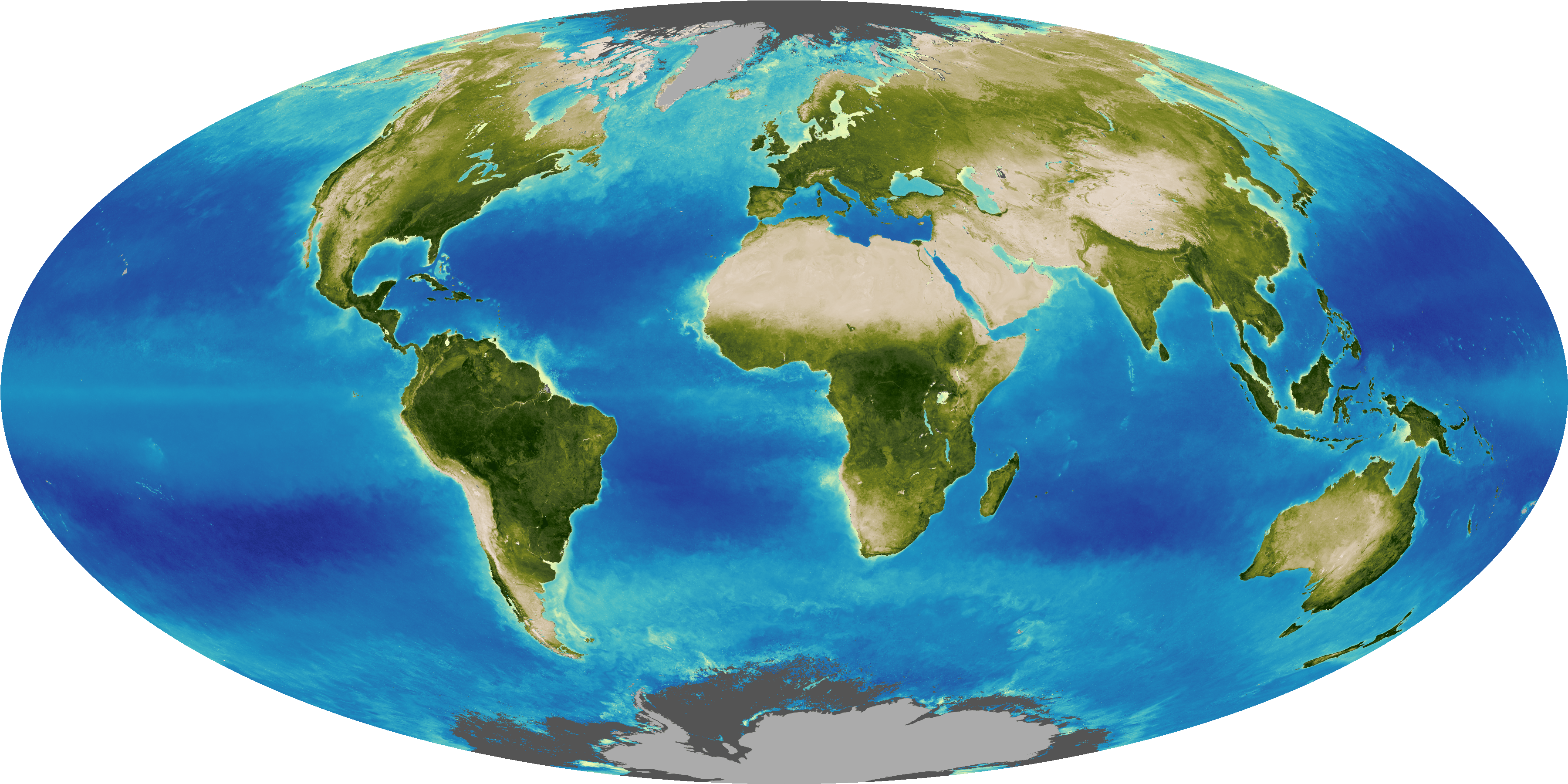
Facts About Earth

Suggestions or feedback?
MIT News | Massachusetts Institute of Technology
- Machine learning
- Social justice
- Black holes
- Classes and programs
Departments
- Aeronautics and Astronautics
- Brain and Cognitive Sciences
- Architecture
- Political Science
- Mechanical Engineering
Centers, Labs, & Programs
- Abdul Latif Jameel Poverty Action Lab (J-PAL)
- Picower Institute for Learning and Memory
- Lincoln Laboratory
- School of Architecture + Planning
- School of Engineering
- School of Humanities, Arts, and Social Sciences
- Sloan School of Management
- School of Science
- MIT Schwarzman College of Computing
MIT-derived algorithm helps forecast the frequency of extreme weather
Press contact :.
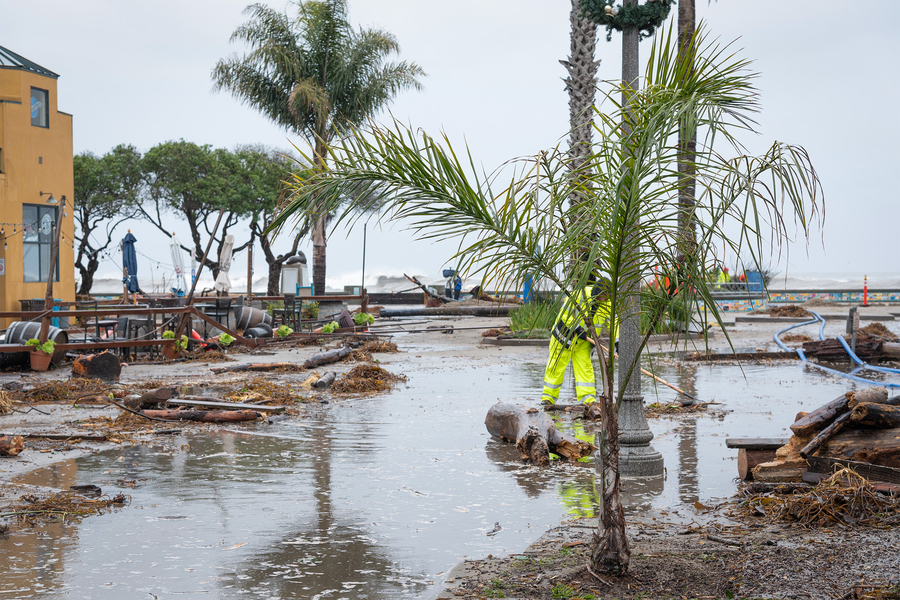
Previous image Next image
To assess a community’s risk of extreme weather, policymakers rely first on global climate models that can be run decades, and even centuries, forward in time, but only at a coarse resolution. These models might be used to gauge, for instance, future climate conditions for the northeastern U.S., but not specifically for Boston.
To estimate Boston’s future risk of extreme weather such as flooding, policymakers can combine a coarse model’s large-scale predictions with a finer-resolution model, tuned to estimate how often Boston is likely to experience damaging floods as the climate warms. But this risk analysis is only as accurate as the predictions from that first, coarser climate model.
“If you get those wrong for large-scale environments, then you miss everything in terms of what extreme events will look like at smaller scales, such as over individual cities,” says Themistoklis Sapsis, the William I. Koch Professor and director of the Center for Ocean Engineering in MIT’s Department of Mechanical Engineering.
Sapsis and his colleagues have now developed a method to “correct” the predictions from coarse climate models. By combining machine learning with dynamical systems theory, the team’s approach “nudges” a climate model’s simulations into more realistic patterns over large scales. When paired with smaller-scale models to predict specific weather events such as tropical cyclones or floods, the team’s approach produced more accurate predictions for how often specific locations will experience those events over the next few decades, compared to predictions made without the correction scheme.

Sapsis says the new correction scheme is general in form and can be applied to any global climate model. Once corrected, the models can help to determine where and how often extreme weather will strike as global temperatures rise over the coming years.
“Climate change will have an effect on every aspect of human life, and every type of life on the planet, from biodiversity to food security to the economy,” Sapsis says. “If we have capabilities to know accurately how extreme weather will change, especially over specific locations, it can make a lot of difference in terms of preparation and doing the right engineering to come up with solutions. This is the method that can open the way to do that.”
The team’s results appear today in the Journal of Advances in Modeling Earth Systems . The study’s MIT co-authors include postdoc Benedikt Barthel Sorensen and Alexis-Tzianni Charalampopoulos SM ’19, PhD ’23, with Shixuan Zhang, Bryce Harrop, and Ruby Leung of the Pacific Northwest National Laboratory in Washington state.
Over the hood
Today’s large-scale climate models simulate weather features such as the average temperature, humidity, and precipitation around the world, on a grid-by-grid basis. Running simulations of these models takes enormous computing power, and in order to simulate how weather features will interact and evolve over periods of decades or longer, models average out features every 100 kilometers or so.
“It’s a very heavy computation requiring supercomputers,” Sapsis notes. “But these models still do not resolve very important processes like clouds or storms, which occur over smaller scales of a kilometer or less.”
To improve the resolution of these coarse climate models, scientists typically have gone under the hood to try and fix a model’s underlying dynamical equations, which describe how phenomena in the atmosphere and oceans should physically interact.
“People have tried to dissect into climate model codes that have been developed over the last 20 to 30 years, which is a nightmare, because you can lose a lot of stability in your simulation,” Sapsis explains. “What we’re doing is a completely different approach, in that we’re not trying to correct the equations but instead correct the model’s output.”
The team’s new approach takes a model’s output, or simulation, and overlays an algorithm that nudges the simulation toward something that more closely represents real-world conditions. The algorithm is based on a machine-learning scheme that takes in data, such as past information for temperature and humidity around the world, and learns associations within the data that represent fundamental dynamics among weather features. The algorithm then uses these learned associations to correct a model’s predictions.
“What we’re doing is trying to correct dynamics, as in how an extreme weather feature, such as the windspeeds during a Hurricane Sandy event, will look like in the coarse model, versus in reality,” Sapsis says. “The method learns dynamics, and dynamics are universal. Having the correct dynamics eventually leads to correct statistics, for example, frequency of rare extreme events.”
Climate correction
As a first test of their new approach, the team used the machine-learning scheme to correct simulations produced by the Energy Exascale Earth System Model (E3SM), a climate model run by the U.S. Department of Energy, that simulates climate patterns around the world at a resolution of 110 kilometers. The researchers used eight years of past data for temperature, humidity, and wind speed to train their new algorithm, which learned dynamical associations between the measured weather features and the E3SM model. They then ran the climate model forward in time for about 36 years and applied the trained algorithm to the model’s simulations. They found that the corrected version produced climate patterns that more closely matched real-world observations from the last 36 years, not used for training.
“We’re not talking about huge differences in absolute terms,” Sapsis says. “An extreme event in the uncorrected simulation might be 105 degrees Fahrenheit, versus 115 degrees with our corrections. But for humans experiencing this, that is a big difference.”
When the team then paired the corrected coarse model with a specific, finer-resolution model of tropical cyclones, they found the approach accurately reproduced the frequency of extreme storms in specific locations around the world.
“We now have a coarse model that can get you the right frequency of events, for the present climate. It’s much more improved,” Sapsis says. “Once we correct the dynamics, this is a relevant correction, even when you have a different average global temperature, and it can be used for understanding how forest fires, flooding events, and heat waves will look in a future climate. Our ongoing work is focusing on analyzing future climate scenarios.”
“The results are particularly impressive as the method shows promising results on E3SM, a state-of-the-art climate model,” says Pedram Hassanzadeh, an associate professor who leads the Climate Extremes Theory and Data group at the University of Chicago and was not involved with the study. “It would be interesting to see what climate change projections this framework yields once future greenhouse-gas emission scenarios are incorporated.”
This work was supported, in part, by the U.S. Defense Advanced Research Projects Agency.
Share this news article on:
Related links.
- Themis Sapsis
- Department of Mechanical Engineering
Related Topics
- Artificial intelligence
- Climate change
- Computer modeling
- Disaster response
- Earth and atmospheric sciences
- Environment
- Fluid dynamics
- Mechanical engineering
- Natural disasters
- Planetary science
- Defense Advanced Research Projects Agency (DARPA)
Related Articles

Engineers use artificial intelligence to capture the complexity of breaking waves
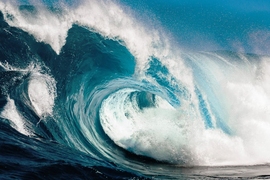
Rogue wave ahead
Previous item Next item
More MIT News

MIT economics to launch new predoctoral fellowship program
Read full story →

Programming functional fabrics

Most work is new work, long-term study of U.S. census data shows

Does technology help or hurt employment?
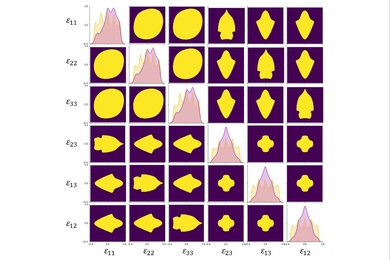
A first-ever complete map for elastic strain engineering

“Life is short, so aim high”
- More news on MIT News homepage →
Massachusetts Institute of Technology 77 Massachusetts Avenue, Cambridge, MA, USA
- Map (opens in new window)
- Events (opens in new window)
- People (opens in new window)
- Careers (opens in new window)
- Accessibility
- Social Media Hub
- MIT on Facebook
- MIT on YouTube
- MIT on Instagram

Moscow 14 Day Extended Forecast
Moscow extended forecast with high and low temperatures.
See weather overview
2 Week Extended Forecast in Moscow, Russia
Hour-by-hour weather for Moscow next 7 days
Need some help?
Mountain View, CA
Mountain View
Around the Globe
Hurricane tracker.
Severe Weather
Radar & Maps
News & features, winter center.
Total solar eclipse cloud forecast: Where will clouds spoil the show?
The countdown is on and in a few days, millions of people from Mexico to Canada will see a celestial spectacle unlike any other, but forecasters warn clouds could dash the hopes of onlookers in part of North America.
Published Apr 1, 2024 9:23 AM PDT | Updated Apr 1, 2024 9:25 AM PDT
What will make this year’s eclipse different from the one in 2017? When will the next one be in the U.S.? We’re answering those questions and much more.
The final countdown is underway until the moon's shadow casts part of the United States into darkness for a few fleeting moments, and the deciding factor of whether or not people in the path of totality see the event may boil down to one thing: clouds.
The eclipse takes place on Monday, April 8, and for areas in the path of totality, it will be an afternoon affair with the exact timing varying depending on your exact location. People outside of the path of totality will still be able to see a partial solar eclipse as long as clouds don't spoil the show. AccuWeather's latest total solar eclipse cloud forecast is looking promising for some, but concerning for others.
"Some high clouds may streak across the Great Lakes during the 8th, reaching northwest Pennsylvania in the afternoon," AccuWeather lead long-range forecaster Paul Pastelok said. "Another area AccuWeather forecasters are watching is southern California and southeast Arizona, where some clouds may develop from a system in that area. "

Where will the best weather be for viewing the eclipse?
"It would seem that the best places to be for observing the eclipse will run from southern Illinois and Kentucky eastward to the East Coast and up into New York State and New England," AccuWeather long-rage expert Joe Lundberg said. "The area from West Texas to southern Arizona should also have favorable viewing conditions. These areas will either be in or close to the path of totality with the least amount of cloud cover anticipated"
What areas face a cloudy forecast for Monday?
Lundberg says other places along or near the path of totality that will have more adverse viewing conditions appear to be from Missouri and Kansas southward into central and east Texas, where it is likely to be rather cloudy with showers and perhaps some thunderstorms.
"Other areas with poor viewing conditions will be from Wisconsin westward through South Dakota and Nebraska to Washington and Oregon," Lundberg adds.
In addition to the cloud forecast, Pastelok says there are a few factors involved in the weather pattern leading up to the eclipse that could affect those traveling to viewing locations.
"The first system will make an impact late on April 6 and 7 for travel in the Plains with severe weather, torrential downpours and the threat of tornadoes," Pastelok said. "This storm loses some of its punch heading into the 8th."
A second factor is a nearly stalled front across the southern Plains that activates on April 8, the day of the eclipse, when Pastelok says there may be a time when there is not much severe weather but showers and some thunderstorms develop with isolated severe weather.
Continue to check back with AccuWeather through April 8 for the latest eclipse cloud forecast.
More Eclipse Coverage:

Want next-level safety, ad-free? Unlock advanced, hyperlocal severe weather alerts when you subscribe to Premium+ on the AccuWeather app . AccuWeather Alerts ™ are prompted by our expert meteorologists who monitor and analyze dangerous weather risks 24/7 to keep you and your family safer.
Weather News

Pounding hail, flooding rain and damaging winds rip from New Mexico to...

Rounds of heavy April rain to boost flood risk in central, eastern US

Rotating storms swirl over Missouri
Top Stories
Trending Today
Accuweather early, accuweather prime.
Solar Eclipse 2024
Severe weather packs a punch as powerful storms press into eastern US
3 hours ago

20 hours ago

Winter Weather
April nor'easter to unload feet of snow in northern New England, NY

7 taken to New York hospital after ‘severe turbulence’ on flight
22 hours ago

Crews begin 'complex process' of removing wrecked Baltimore bridge
17 hours ago

Featured Stories
LIVE: Over 40 million in path of upcoming solar eclipse
LATEST ENTRY
Over 40 million people to see total solar eclipse, weather permitting
23 hours ago

Infamous wooden plank from 'Titanic' sold for over $700,000

Sharks wearing cameras revealed the world’s largest seagrass ecosystem

Pandas aren’t all black and white and scientists now understand why

Everest climbers must now pack their poop with them

We have updated our Privacy Policy and Cookie Policy .
Get AccuWeather alerts as they happen with our browser notifications.
Notifications Enabled
Thanks! We’ll keep you informed.
The 2024 total solar eclipse is in less than a week: How to get glasses; cloud forecast

The 2024 total solar eclipse is now less than one week away, and forecasters are getting a clearer picture of what the skies will look like. It's not all good news for people who want to see the sky spectacle.
Next Monday afternoon, April 8, a total eclipse of the sun will cross over a dozen states as it traverses from Texas to Maine. Millions of people are expected to travel to see it.
The full total solar eclipse experience will plunge people along a narrow path into darkness midday, but people outside the path of totality can still use eclipse glasses (maybe free eclipse glasses ) to see the moon pass in front of the sun — if it's not blocked by clouds.
Here's the latest weather forecast for the day of the eclipse:
A grim forecast for Texas
Unfortunately, the weather is looking iffy for folks in some places, especially Southern areas: The cloud cover forecast "shows fairly high probability of clouds in Texas up through the Mississippi Valley," wrote meteorologist Matt Lanza on his blog The Eyewall.
The National Weather Service in Dallas said there's only a dismal 15% chance for favorable viewing conditions in Dallas on April 8. "The outlook for favorable viewing conditions continues to deteriorate as the event approaches," the weather service said.
Indeed, the computer models that meteorologists use to forecast weather show a grim forecast for Texas: "The operational runs of both the GFS and European models have, consistently, shown nearly 100 percent cloud cover across much of the state during the early afternoon hours on Monday," said Eric Berger, a Houston-based meteorologist on the blog Space City Weather .
Another forecaster, Marc Chenard of the Weather Prediction Center, confirmed the gloomy forecast to USA TODAY: "Cloud cover is most likely in Texas, Oklahoma and Arkansas," he said. In fact, "varying degrees of cloudiness" are likely all the way to the Ohio Valley, he said.
Where is the best chance for clear skies?
The best chances for clear conditions are in New England and upstate New York, Chenard told USA TODAY.
"If I’m picking a place right now, it’s probably like Watertown, New York," Lanza said.
The National Weather Service in Buffalo is also bullish on the chances for good weather, with a caveat: The forecast continues to suggest dry weather for Monday with high pressure over the eastern Great Lakes and Ohio Valley, "however it is FAR too early to forecast cloud cover with any confidence or reliability," the weather service wrote in its forecast discussion.
Ironically, the prediction of clouds in Texas and clear skies in the Northeast are the opposite of historical trends for cloud cover .
Time running out to get solar eclipse glasses
You can't control the weather or the traffic , but one thing you can do right now ahead of the total solar eclipse is to get yourself a pair of special eclipse glasses , so you can safely view the cosmic spectacle .
The race is on for skygazers to get their hands on a pair of solar eclipse glasses before the big day on April 8 , and many people may be turning to Warby Parker .
The glasses retailer based in New York City has previously announced that beginning Monday April 1, it will be giving away free certified solar eclipse glasses at its stores in the United States. Not a bad offer for those worried that shipping and delivery times may make online orders a risk so close to the upcoming total solar eclipse itself.
And because Warby Parker has more than 240 retail locations across the country, there's a good chance would-be eclipse spectators will have a store close by if they're willing to make the trip.
How do I watch the 2024 solar eclipse, if clouds don't block it?
There are a few ways of watching the eclipse:
- Get the full experience in person : If you're in a narrow band of U.S. land that spans from Texas to Maine, you could see the moon block the sun and its shadow cast a night-like darkness over Earth for a few minutes. You could briefly be able to look up without eye protection and see the moon block the sun.
- Watch from outside the path of totality : Much of the U.S. could get a partial view of the eclipse that isn't nearly as impressive as being in the path of totality. Earth won't be plunged into complete darkness and you'll have to wear protective eyewear to see the moon partially block the sun.
- Watch a livestream : Check back on April 8 for a video feed from the path of totality. It's not the same as being there in person, but hey, at least you won't have to sit in traffic .
What time is the solar eclipse on April 8?
The eclipse will begin in Texas at 1:27 p.m. CDT and end in Maine at 3:35 p.m. EDT, but the exact time of the eclipse varies by where you are in its path.
Here are the major cities in each state where you can expect to experience totality (note that the included times do not account for when the partial eclipse begins and ends):
- Dallas, Texas: 1:40-1:44 p.m. CDT
- Idabel, Oklahoma: 1:45-1:49 p.m. CDT
- Little Rock, Arkansas: 1:51-1:54 p.m. CDT
- Poplar Bluff, Missouri: 1:56-2:00 p.m. CDT
- Paducah, Kentucky: 2-2:02 p.m. CDT
- Carbondale, Illinois: 1:59-2:03 p.m. CDT
- Evansville, Indiana: 2:02-2:05 p.m. CDT
- Cleveland, Ohio: 3:13-3:17 p.m. EDT
- Erie, Pennsylvania: 3:16-3:20 p.m. EDT
- Buffalo, New York: 3:18-3:22 p.m. EDT
- Burlington, Vermont: 3:26-3:29 p.m. EDT
- Lancaster, New Hampshire: 3:27-3:30 p.m. EDT
- Caribou, Maine: 3:32-3:34 p.m. EDT
Will clouds really ruin the eclipse?
Clouds are just part of weather, and as noted in the latest forecast, it's likely that some of the millions of people in the path of totality for April's total eclipse will have to endure overcast skies that will impact the experience .
But determining how clouds would change your view depends on the types of clouds – and which expert you ask. Some advise eclipse watchers to not worry about the skies, others say an overcast sky can ruin the experience.
Before last year's annular solar eclipse, National Weather Service meteorologist Tim Daldrup told Oregon Public Radio that if clouds are in the forecast, you should hope for the "right kind of clouds."
“If we want to see it, we’ll want the higher-level clouds,” Daldrup told OPR. “Those tend to be the more feathery cirrus clouds that can still be seen through. They might obstruct the eclipse but you can still see it.”
Cirrus clouds would be in contrast to some of the more eclipse-unfriendly clouds, such as a thick deck of lower-level stratus or cumulus clouds that would likely completely block the sun.

IMAGES
VIDEO
COMMENTS
In this post, you'll learn all the terms you need to talk about weather in English, like describing sunny days, stormy days and all those in between—as well as why the weather is considered such a hot topic. Contents. How to Talk About Weather in English; 1. How's the weather? / What's it like out there? 2.
The word "weather" is used to describe the state of the atmosphere in terms of wind, temperature, humidity, and more. For example: " The weather outside is nice.". The word "climate" is used to describe the general weather of a specific region. For example: "The UK has a temperate climate.". The word "temperature" is used to ...
English speakers love to talk about the weather. It is a way of breaking the ice (starting a conversation). People talk about the weather on the phone and in person. Friends and family talk about the weather before they discuss what's new. Co-workers talk about the weather before starting a hard day of work. Even strangers discuss the weather.
Category #3: Clouds. Overcast. Def: having a sky covered or obscured by clouds. Ex. "It was an overcast morning, so I wasn't too worried about getting sunburned.". Gloomy. Def: damp, partially dark, rainy, and with thick cloud cover. Ex. "The weather is so gloomy today; it's perfect for staying in and reading books.".
Hot/Warm/Cool/Cold. These are all words that are used to describe the temperature. Hot is only used to describe very, very warm temperatures such as in the middle of summer. In some parts of the world it is hot all year, however in most places only throughout the summer months. Warm would usually be used for the Spring and sometimes the Fall.
Now I live in Ankara. The weather is cold in winter and also in autumn. It is usually cloudy, sometimes rainy and a little windy. I had lived in Istanbul, my dream city, for twenty years. The weather of Istanbul is usually warm and windy. It rains a lot. But the sky is always clear, you can see the sun after rain or snow opposite of Ankara.
Weather is a common topic that most of us talk about in our everyday life. You can start talking to a stranger by asking about the weather as a part of getting to know each other. Even if you feel awkward approaching someone you already know, you can start with the weather as a part of small talk. You can easily break the ice if you know the appropriate expression to talk to someone about the ...
One of the most basic topics of conversation is the weather. It seems like a discussion that you can't get away from! It's also an easy way to start a conversation, even with strangers. Knowing some simple weather phrases in English will help you get through "small talk" much more easily.
Learn useful English vocabulary, idioms and expressions to talk about the weather and seasons. Get the lesson transcripts and activities: https://bit.ly/37lU...
In this class, you'll learn how to talk about the weather in English. Talking about the weather in English can help with your conversation skills. We will te...
Weather Vocabulary. These are some of the words we use to talk about the weather. Sunny (having a lot of light from the sun) I hope it's sunny tomorrow. Cloudy (water in the sky that appears as a white or grey mass) Tomorrow, it will be cloudy and cool. Stormy (with strong winds, heavy rain, and dark clouds)
How to talk about the weather in English. by Adriana Stein Published on January 20, 2020 / Updated on November 10, 2022
an appliance that cools down the air in a home or building. The airconditioner keeps the office nice and comfortable even when it's very hot outside. avalanche. noun. a dangerous slide of snow down a mountain. The skiers were warned about a possible avalanche. below freezing. preposition/ adjective. temperature less than 0 degrees Celsius/ (32F)
The Weather in English. In English, we usually use it is when we talk about the weather. This is normally: It is + adjective OR It is + verb-ing It is + adjective = A description of the weather. It is sunny today.; It's hot and humid today.; It's a nice day today.; We can also say: It is a + adjective + day (or morning/afternoon/night). It's a fine day.; It's a windy afternoon.
Even if you need English for business, you need to know how to have a conversation about general topics in English.. The weather is one of the most common general topics, especially for English and Irish people, as we often have 4 seasons in one day!. Knowing how to describe different types of weather can help you chat with native speakers and understand weather forecasts.
Since this is a topic that comes up quite frequently, it is important that we be able to speak comfortably and fluently about this topic. In this lesson, we will go over some useful sentences and questions to use when talking about the weather. 1. We can ask another person about the weather in any verb tense. Meaning we can ask about today's ...
Weather. Th ree short dialogs for vocabulary, listening, and speaking practice. Extension activity on attached Page 2. Answer Key attached on Page 3. Level: Beginner. Audio and Answer Key are also available in video format below (2:47) for your students! .
Download Full Lessons Package - Daily English Conversation by Topic (mp3+pdf) Listening is THE KEY to better English speaking. The more REAL English conversations you listen to, the more fluent you will become, to be sure. For a small one-time investment, you can get the whole package of 75 lessons. Put it into your phone or MP3 Player and ...
The weather is an important topic for kids no matter where they live. It could be in the coldest place, or maybe in a more tropical zone.As they grow up, children start to recognise the different temperatures throughout the year, as they set out on a journey to look for signs of rainstorms, or wait for spring to come.. There are lots of reasons that make learning weather related words at a ...
NASA's Plankton, Aerosol, Cloud, ocean Ecosystem (PACE) satellite launched aboard a SpaceX Falcon 9 rocket at 1:33 a.m. EST, Feb. 8, 2024, from Space Launch Complex 40 at Cape Canaveral Space ...
About 50 million people were under severe weather advisories from the National Weather Service, which warned of flash floods, long-track tornadoes and baseball-sized hail. Meteorologists say the ...
Be prepared with the most accurate 10-day forecast for Moscow, PA with highs, lows, chance of precipitation from The Weather Channel and Weather.com
Damaging winds, large hail and tornadoes are possible. Severe weather is in the forecast for the Heartland and the Midwest, with damaging winds, large hail and even a few strong tornadoes possible ...
Global climate change is not a future problem. Changes to Earth's climate driven by increased human emissions of heat-trapping greenhouse gases are already having widespread effects on the environment: glaciers and ice sheets are shrinking, river and lake ice is breaking up earlier, plant and animal geographic ranges are shifting, and plants and trees are blooming sooner.
Mother Nature might eclipse the eclipse, top meteorologists told USA TODAY Thursday when asked about the weather forecast for the April 8 spectacle, now just nine days away. That is, if clouds don ...
MIT researchers developed a method to improve predictions from large-scale climate models. When paired with smaller-scale models to predict specific weather events such as tropical cyclones or floods, the approach produced more accurate predictions for how often specific locations will experience those events over the next few decades.
Moscow 14 Day Extended Forecast. Weather Today Weather Hourly 14 Day Forecast Yesterday/Past Weather Climate (Averages) Currently: 29 °F. Clear.
TOMORROW'S WEATHER FORECAST. 12/19. 38° / 35°. RealFeel® 32°. A bit of morning snow; cloudy. Snowfall Probability. Snow expected tomorrow - see amounts.
The countdown is on and in a few days, millions of people from Mexico to Canada will see a celestial spectacle unlike any other, but forecasters warn clouds could dash the hopes of onlookers in ...
The sky spectacle is just one week away. Next Monday afternoon, April 8, a total eclipse of the sun will cross over a dozen states as it traverses from Texas to Maine. Millions of people are ...